Welcome to the September 2022 issue of the Global Washington newsletter.
IN THIS ISSUE
Letter from our Executive Director
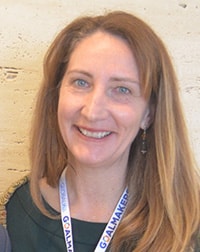
World leaders, diplomats, and global development practitioners from around the globe gathered last week at the UN General Assembly to address critical challenges and “transformative solutions.” While the topics of jobs and economic development were discussed, the opportunity of youth employment should be elevated as a priority. History has shown us that countries thrive when there are employment opportunities for youth entering the workforce. This untapped potential can form the basis of innovative economies, create cohesive societies, and provide stability for individual well-being.
The continent of Africa has the highest number of youth per population than anywhere in the world. By 2030, there will be 375 million young people entering the job market. The next few decades will be a moment in time for countries to catalyze inclusive growth or experience an incredible missed opportunity. Other regions in the world are facing similar circumstances with high youth unemployment and mass migration out of their economies.
However, there are several Global Washington members building the elements and infrastructure needed for future job growth, prosperity, and innovation. From large corporations like Microsoft to smaller NGOs such as Spreeha, each is building financial inclusion for future communities. Learn more in the article below.
We hope you can join us on October 27th at the Seattle Chamber of Commerce for Leading in Times of Transformation. Tim Hanstead, CEO of The Chandler Foundation, will facilitate a conversation with Elena Bonometti, CEO of Tostan, and Emily Bancroft, President of VillageReach, about how they are navigating, adapting, and innovating in an era of rapid, sector-wide change.
Also, I hope you can join me at the 2022 Goalmakers Conference on December 7 and 8. Featured speakers include humanitarian leader Degan Ali, Enock Chikava from the Gates Foundation, Jay Sehgal from the Seghal Foundation, Birger Stamperdahl from Give2Asia, and Katie Young from Starbucks. Registration and more information can be found here.
If you are a Global Washington member in good standing, you still have time to apply for the GlobalWA Fast Pitch, which will take place in-person this year at our Goalmakers Conference on December 8. This is an excellent opportunity to promote your organization in front of an audience of potential partners. Read more about our Fast Pitch and apply here. Application deadline is Monday, October 3rd.

Kristen Dailey
Executive Director
Back to Top
Issue Brief
Capitalizing on the World’s Underutilized Workforce
By Aneesh Chatterjee
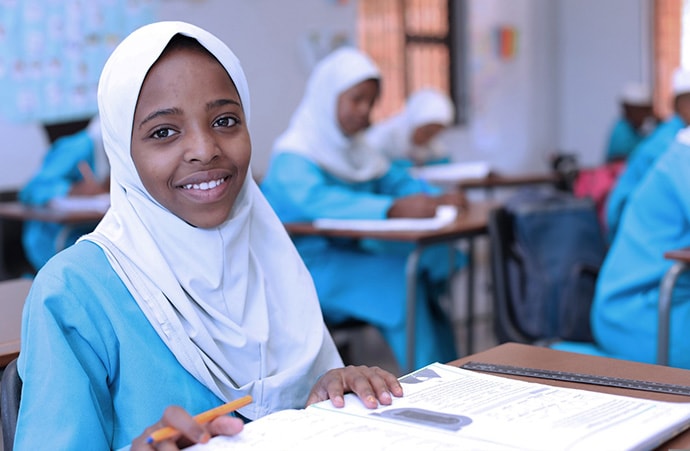
Photo: aymanfakhry1999, Pixabay
A promising population of young, skilled workers might be what low and middle income countries (LMICs) need to stimulate their economies, but the lack of domestic opportunity or proper utilization of the workforce may compel workers to apply themselves abroad, leaving behind derelict economies with little hope of recovery. The Boost Africa program aims to prevent such a scenario. Providing training and resources to skilled workers in the realms of entrepreneurship, business funding, capital, and guidance in establishing thriving operations in African countries, the program hopes to stimulate vital sectors – healthcare, agriculture, renewable energy, education – and generate economic stability. The choice to prioritize the complete actualization of the domestic workforce is one of significant impact, and in adherence with the tenets of SDG 1 (No Poverty) and SDG 8 (Decent Work and Economic Growth).
Through direct engagement with workers and by implementing broader, systemic changes, the following GlobalWA members demonstrate the vitality of investing in the enrichment and education of the workforce.
Stimulating a Workforce: Direct Engagement
Broad-spectrum systemic changes comprise the strategic cornerstones of global socio-economic development. Multinational corporations (MNCs) employ several noteworthy strategies to generate multi-sector transformation in how transnational commercial operations are conducted – and, in turn, how the workforces of LMICs involved with these entities are impacted. A Resonance Global article by Kristin Beyard highlights the framework for such strategies in a three-tier format: first, MNCs guide multiple cooperative parties and organizations to adopt sweeping changes through supply chains; secondly, MNCs actively form partnerships with specialized entities (such as NGOs) to help them engage with regional or sector-specific issues, delegating full engagement to these satellite organizations; finally, MNCs invest in market systems analysis to identify the nature of the market they wish to engage with, economic motivations for local entities and indicators for their return on investment for specific projects.

Beyard’s distillation of these practices, broadly designated market systems development (MSD), is exemplified by PepsiCo’s decision to invest in women through their agricultural supply chains. Through a joint initiative with USAID, their 2020 Global Development Alliance (GDA) adopted an exhaustive approach to make the case for empowering women in agricultural supply chains – thereby engaging an underutilized workforce through multiple actors. By training local farmers in sustainable practices, providing grants and business development resources to women, and collecting data to build a case for other actors involved in PepsiCo’s supply chains, the GDA effectively engaged with women in the workforce across India, Vietnam, Pakistan, and Columbia. Similarly, PepsiCo’s recruitment of Pioneer Foods demonstrates the second practice mentioned in the MSD structure: joining forces with specialized entities to oversee region-specific operations – in this case, the implementation of start-up services and commercialization training for farmers in South Africa.
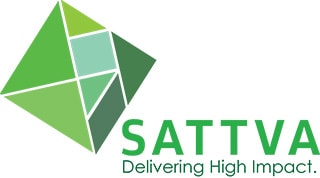
Engaging with women in the workforce has also been the focus of the 2019-2020 SelectHER program by Sattva, focusing on Indian women marginalized through gender stereotypes and a lack of formal education or training, often relegated to low-income, unformalized work with little to no job security. By running training programs in customer service, computer basics, resumé building and interview seminars and personality-focused counseling sessions for mental health development, the SelectHER program observed noteworthy advancements in social skills, mental and emotional wellbeing, and career potential among 110 candidates. The program’s findings recommend that fostering digital and computer-based transferrable skills, alongside agency-focused personality development, are central to actualizing the employment potential of underutilized workers. These results are reflected in the operational goals of the Kusholi program by the Spreeha Foundation, focused on reducing the gap between the demand for skilled labor and the lack of technical expertise among the upcoming youth of Bangladesh. Underlining the high school dropout rates at 30%, the Kusholi program aims to foster a vast range of applicable skills, starting from soft skill training (e.g. graphic design, mobile services, photography and multimedia) to hands-on specialties such as appliances and electronics, cooking, auto mechanic training, and beyond. Through scholarships, Kusholi prioritizes skill development for school students while encouraging students to complete their education. Beyond the school demographic, the program also offers 6-month apprenticeships in specific high-demand sectors, complete with certification that can assist in the procurement of reliable jobs, domestic or abroad.

Another organization focusing on the untapped potential of the Indian market is Upaya. Exemplifying tenets of MSD, Upaya invests in partner organizations to oversee the development of secure, long-term and reliable jobs for the poorest populations in the country. Without access to education or resources, underprivileged workers are granted entrepreneurial training, guidance in business development, and active job generation. Their Accelerator Program provides key lessons in business management, financial acumen, strategy development, fundraising, and other aspects of entrepreneurship. Through seed funding and philanthropic networks, Upaya helps partner organizations grow while building reliable funding sources through donating parties. The Seattle-based organization has fostered 21,834 jobs across India, investing $1.3 million in 31 partner entities.

Systemic Innovation
The digital space is a frontier that transcends many of the barriers faced in brick-and-mortar economies – but not without problems of its own. Across African nations, the usage of mobile phones has seen a noteworthy increase during the pandemic. Widespread connectivity in the digital space has enabled individuals of all financial standings to access mobile financial accounts, alleviating the need to visit tangible banks for many. Digital money access streamlines the journey to financial stability, cutting down on time and expenses required by individuals to access their own funds. However, a lack of cohesive policies between traditional banks and mobile money accounts introduces friction when individuals attempt to access financial resources, open savings accounts, or take out loans. Cooperation between the two realms of personal finance remains scarce, leading to substantial services fees imposed on individuals.

As a proposed solution, the Bill and Melinda Gates Foundation, in partnership with Dalberg Global Development Advisors and Rockefeller Philanthropy Advisors, launched AfricaNenda in 2021. In addition to creating fast and reliable services for electronic payment systems, AfricaNenda aims to correct the discrepancies between mobile banking, traditional banks, Electronic Money Issuers (EMIs), and other financial institutions. In Ghana, this goal is successfully manifested: the GhIPPS Instant Pay system allows for a fully centralized electronic banking network with instantaneous transactions, working cohesively with traditional financial resources, increasing easy access to savings accounts, quick digital payments, and greatly eroding barriers to financial autonomy.

In the wake of the pandemic, Microsoft is leading the recovery of the workforce through systemic innovation in cross-sector digital enterprises. With over 25 million people disadvantaged from rapid changes to traditional work environments, Microsoft’s 2020 global skills initiative sought to acquaint people with in-demand digital skills, enabling workers to take full advantage of emerging opportunities. The program’s provision of free access to online courses on LinkedIn Learning, Microsoft Learn and Github Learning Lab, for instance, reached over 30 million people over an 8-month period, empowering workers with skills in IT, project management, customer service, software development and many other fields. The focus on digitalization in the wake of global lockdowns is supported by a substantial shift toward a virtual employment market, with a predicted 149 million jobs in software development, cybersecurity and IT to eclipse traditional jobs in the US by 2025. In order to reach struggling communities across the world, the program’s philanthropic branch has invested $20 million in grants to NGOs, generating further educational initiatives and enabling access to the digital economy for nearly 6 million people in underdeveloped regions.
Through resilient advancements, Microsoft has transformed the post-COVID workforce into one with considerable potential for stable growth in coming years.

Climate Change: A Necessary Acknowledgement
Beyond digital innovation and infrastructure development, broader systemic changes impact the job market in different ways. Save the Children International spotlights climate change as a pivotal factor in determining the potential for workforces in LMICs across the world. In climate-sensitive sectors such as energy, transportation, water, and construction, climate-resilient infrastructure is identified as essential groundwork for a robust and adaptable workforce that can withstand the rapid impacts of accelerating climate change. Theoretical investments in the energy sectors of LMICs, while promising increased workforce productivity through reliable electricity, safe and consistent access to clean water, and refrigeration for food and medical supplies, come at the price of heavy environmental impacts. A shift toward renewable energy is deemed essential, encouraging with it a far-ranging implementation of sustainability practices – for both ecological and socio-economic development. To that end, the following GlobalWA members demonstrate hands-on approaches to address specialized issues in sectors across LMICs that have significant environmental and societal impact.

Land insecurity plagues up to 60% of Columbian citizens, with an inability to formally claim their own land leading to persistent land disputes, lack of access to funding and legal resources, and exacerbated poverty. To ameliorate the crisis of land recognition for Columbians, the Mercy Corps initiative titled Suyo utilizes efficient infrastructure, low-cost implementation, and proactive field work in local communities to engage with families and provide necessary solutions. By sending agents to meet families and ascertain the costs and scope of formalizing their land entitlement, Suyo matches data collected from citizens with existing government records to streamline the formalization process in an efficient and cost-effective manner. The provision of formal land ownership, accompanied by all necessary documentation to prevent disputes or legitimacy challenges, enables families to access credit, the freedom to assign ownership rights, and a relief from the numerous issues carried by land insecurity.
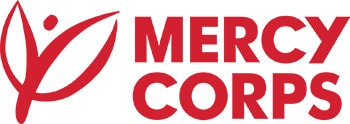
Agros International has conducted training programs in Nicaragua, teaching local farmers to produce and utilize bio-fertilizers. Cheaper and more conducive to the environment, bio-fertilizers recycled from manure reduce the emissions of methane and ammonia that accompany the production and deployment of traditional nitrogen-based fertilizers, decreasing greenhouse gas emissions from the ground up.

In the face of Somalia’s drought crisis, World Concern launched a 2021 initiative to provide vital access to clean water and food vouchers to Somalian families in the Lower Juba region. The relief efforts include the implementation of water tanks, WASH packages for locals, and in some cases, drought-resistant seeds and livestock to stimulate agricultural development. The provision of emergency infrastructure development asks locals to donate their time and effort in helping with soil and water conservation, in addition to being trained in disaster reduction and sustainable practices. By providing critical resources to sustain a population crippled by drought, along with training locals to sustain and proliferate climate-friendly practices, World Concern reinforces the importance of creating economic infrastructure that can operate independently and sustainably.

A Call for Collaborative Specialization
Upheld by the core ideas of market system development (MSD) is the concept of collaborative delegation – the recruitment of multiple parties in order for each to specialize on target sectors, ensuring that every challenge encountered receives the full attention of those willing to act. Beyond that, such structure may be required at multiple tiers of operation, from direct engagement with workers to long-term changes in multi-sector .
As demonstrated by GlobalWA members, great potential exists in the world’s most underutilized workforces. Providing accessible and relevant resources, proper guidance, and the right tools can empower communities to revitalize the world’s leading economic frontiers. Such efforts are fruitful through systemic and sector-specific developments, reaching both the workers themselves and the socio-economic structures they comprise.
In addition to the above organizations, the following GlobalWA members are working towards Innovation for Inclusive Growth through their programs addressing SDG 1 – No Poverty, and SDG 8 – Decent Work and Economic Growth.
ACT for Congo
ACT for Congo exists to support lasting development in DR Congo. We believe that local leadership and ownership are key, so we identify and accompany Congolese humanitarian professionals who lead competent programs that improve lives in Congo.
Our partners support health, drive inclusive economic growth and affect poverty by working with the most vulnerable people in their communities. We help them build their capacity by providing resources and consultation. We require that they meet international standards in accounting and reporting.
Twenty-two years ago, we partnered with a small clinic that grew into a reference hospital (HEAL Africa). We then worked with a startup that became a nationally recognized vocational training facility (HOLD DRC). We now help our longtime partners build an NGO that aids other young organizations build capacity that leads to international credibility. They foster:
- Advocacy, networking and skills for domestic workers
- Improve opportunities for internally displaced people through referral to medical care, counseling and support groups, savings and loan circles, adult literacy, entrepreneurial accompaniment
- Environmental education, reforestation, compost gardening, and alternative fuel production
- Clean water and hygiene for Beni and Goma schools and organizations
- Vocational Training: tailoring, culinary arts, esthetician, professional cleaning, drivers’ education, and masonry.
Capria Ventures
Capria invests in tech startups and funds in emerging markets that are profitably and sustainably improving the lives of millions of aspiring middle and lower-income families. Capria’s theory of impact goes beyond providing catalytic capital, aiming to impact populations or systems that lack access to resources, essential products and services, and quality employment opportunities. Consider Capria’s portfolio company BetterPlace, a workforce management platform in India solving the critical problem of unregulated wages and limited work opportunities for millions of job-seeking blue-collar workers. Or TeamApt, a fintech company targeting Nigeria’s underserved and unbanked which account for 50% of the country’s population.
Together with our thriving network of local investment partners in Latin America, Africa, Middle East, India and Southeast Asia, over $300M has been invested in companies like BetterPlace and TeamApt to democratize access to life improving services and quality employment. This has resulted in over 174,000 quality jobs created and 31 million low and middle-income lives impacted.
Concern Worldwide
Concern Worldwide is a global community of over 4,700 humanitarians working to end extreme poverty with sustainable, community-driven programs – whatever it takes. To achieve this mission, we partner with the most vulnerable communities across 25 countries to address the root causes of extreme poverty fueled by inequality, vulnerability, and risk.
With over 54 years of experience, we know that breaking the cycle of poverty means ensuring communities have access to livelihoods and financial empowerment options, from small-scale credit to invest in business development to training in vocational skills that create employment opportunities. Across our programs, whether it be women in Kenya collecting and selling desert salt to local farmers and herders or using technology for cash transfers in refugee communities, Concern works with individuals to generate livelihood opportunities that make the most sense for them and their families.
Last year, we reached 5.2 million individuals with livelihoods and financial empowerment programs, ensuring they gained increased control over their natural resources, skills, and knowledge to break free from living on less than $1.90 a day.
Global Partnerships
Global Partnerships (GP) is an impact-first investment fund manager dedicated to expanding opportunity for people living in poverty. GP’s affiliated funds make loans and early-stage equity investments to social enterprises in Latin America, the Caribbean, and sub-Saharan Africa.
The investments aim to deliver clear and compelling impact in four dimensions:
- broadening opportunity across all facets of poverty (including health, housing, energy, education, and economic livelihoods);
- deepening inclusion by supporting hard-to-reach, disadvantaged populations, especially woman and the rural poor;
- serving millions by financing sustainable, scalable options with the potential to positively impact the lives of millions of people; and
- improving lives by focusing on solutions that help people living in poverty build economic resilience, stabilize and expand incomes, and improve the health and well-being of their families.
As part of GP’s approach, the GP team rigorously evaluates social enterprises on all four of these dimensions both before and throughout the lifetime of all investments.
Mifos
As the industry’s only open platform for financial inclusion, we provide affordable, adaptable and accessible solutions for any segment of the market, new and small financial institutions can easily start with our community app in a hosted environment, medium and large institutions that are evolving into full-service providers of financial inclusion can use our global network of IT partners to configure a Mifos X solution, and innovators can build and scale entirely new solutions on our API-driven platform.
The Mifos community collectively creates, supports, and sustains innovation worldwide. Our open distributed development model and collaborative support network enable Mifos X users to access and share the knowledge of our global community. local IT partners to provide technology services for financial inclusion, global volunteers to contribute to and extend the platform, and local chapters built around to educate on best practices for technology-enabled financial inclusion.
Resonance Global
Resonance embraces inclusive innovation because we recognize that inclusiveness holds tremendous potential to deliver sustainable impact for all stakeholders. In our global development work and facilitation of pre-competitive and cross-sector partnerships, this means actively bringing together traditional actors with unconventional stakeholders, particularly those most impacted by complex challenges. In addition to client work and support of annual open innovation challenges and prizes, we highlight two specific activities of emphasis.
Resonance launched the Inclusive Innovation Exchange (IIE), a webinar series that brings together cross-sector changemakers around discussions of innovation, bold solutions, and best practices that drive economic development in emerging markets. With a new focus each year, these exchanges emphasize approaches that promote equitable access to data, open innovation, creative and traditional finance instruments, capacity-building, as well as processes that safeguard equitable outcomes.
Resonance collaborated with USAID’s Office of Gender Equality and Women’s Empowerment to co-design and implement the Resilient, Inclusive, & Sustainable Environments (RISE) Challenge. RISE is an open innovation competition to support the innovative application of promising or proven solutions to address gender-based violence in environmental programming, Winning projects were from Colombia, the Democratic Republic of Congo (DRC), Fiji, Guatemala, Kenya, Peru, Uganda, and Vietnam.
Results
RESULTS Educational Fund (RESULTS) works to generate the political will to end poverty by empowering individuals to exercise their power to effect change. Since 1980, our nationwide network of advocates has helped secure hundreds of billions of dollars in U.S. investment in programs and policies to alleviate poverty. We advocate for groundbreaking legislation that saves lives and protects the health of people in low-income countries, reduces barriers for children to go to school and learn, and helps families move out of extreme poverty.
For 20 years, RESULTS hosted the Microcredit Summit Campaign, which played an integral role in driving the massive scale-up of access to microfinance for people in poverty while identifying innovative pathways for financial and social inclusion. The campaign reached 150 million of the world’s poorest families, especially the women, with access to credit for self-employment and other financial and business services.
We also successfully advocate for U.S. funding for tuberculosis, which is world’s biggest infectious killer and a cause and consequence of poverty, and for the Global Fund to Fight AIDS, Tuberculosis and Malaria. The Global Fund and its partners have now saved 50 million lives.
SG Foundation
The SG Foundation has always supported SDG #1 – elimination of poverty. Over time since the establishment of the SG Foundation in 1984 we have come to focus on children and education as the best means of tackling poverty. Education, of course, does not simply entail getting children into school. It means having access to clean water, nutrition, and healthcare. It also connects with SDG #8 – decent work and economic growth. Jobs and income are much needed components to not only get children to school but keep them in school. In Central America (where SG works), many families depend on children to help in the fields or household or otherwise generate income. Staying alive necessarily trumps school. SG Foundation accordingly supports non-profits that help farmers, small businesses, etc., to generate family incomes. We favor working with women who are inclined to be more enthusiastic about educating their children, but our work is not exclusively with women.
We are excited to be a part of the Global WA program where we can connect with like-minded organizations seeking Innovation for Inclusive Growth.
S M Sehgal Foundation
Livelihood enhancement in rural areas through Digital and Life Skills training
As Ravi Kumar, a resident of district Alwar, Rajasthan, started thinking about how to earn to help his family, the Digital and Life Skills training started by S M Sehgal Foundation came as a ray of hope. Ravi enrolled in the course and learned how to use digital devices and the internet. To use his newly acquired digital skills to start his own small enterprise, he discussed a disc jockey (DJ) business plan with a friend. They subsequently collaborated and purchased a DJ system along with a laptop to play music. Within a year of their small start, they began getting more business, including from nearby villages. After paying all expenses, Ravi now earns five to six thousand rupees a month, which he uses to contribute toward his family’s income and for his own education costs.
According to the United Nations, a social perspective on development emphasizes that the best route to socioeconomic development, poverty eradication, and personal well-being is through productive work.
S M Sehgal Foundation works together with communities to create productive employment opportunities for achieving poverty reduction and sustainable economic and social development. Working especially with women and younger people, the foundation team has been able to secure them with work in agriculture and enable them to set up micro-enterprises that lead to income generation and empowerment of the poor, thus contributing to SDG 1 and SDG 8.
Upaya Social Ventures
Upaya Social Ventures works at the forefront of fighting poverty by funding and supporting scalable businesses that create jobs for the extremely poor in India.
To meet the job creation demands of India’s growing population, we prioritize investment into the companies often called “the missing middle.” These businesses are too big for traditional microfinance but often unable to access seed or growth capital. They are also the companies with the greatest potential for job creation. Through our investments and accelerator program, we partner with entrepreneurs to grow their businesses and create jobs that lift families out of extreme poverty.
Our vision is for everyone to have the opportunity to earn a dignified living and pursue their dreams. We believe that creating dignified jobs by supporting small and growing businesses is the key to inclusive growth in India and globally.
To date, our investments have created 27,000 quality jobs for the poor in India – and we are determined to accelerate our reach over the next three years, to reach 50,000 dignified jobs in India’s poorest regions.
Back to Top
Organization Profile
Sattva Aims to End Global Poverty
By Tyler LePard
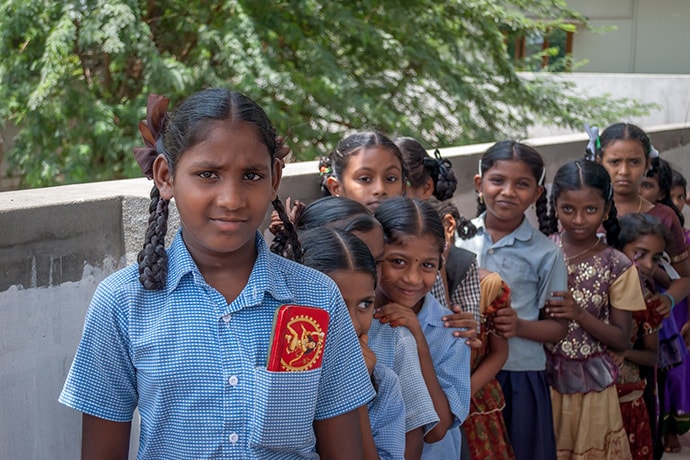
Schoolchildren in India. Photo: Abigail J. Thompson, Pixabay.
Ending global poverty in our lifetime is an audacious mission. So many of Global Washington’s network works on pieces of this goal from different angles – increasing girls’ education or affordable housing, improving health and decreasing disease, or any of the sustainable development goals (SDGs). Sattva works across many issue areas and partners, while focusing on scalable solutions for social impact. Given the complex nature of poverty, by design Sattva works across sectors, stakeholders, services and geographies.
In the beginning, Sattva’s focus was on nonprofits across both strategy development and execution support. It slowly began to work with more and more nonprofit clients. Through these clients, Sattva started engaging with the funding ecosystem, and now they work with anyone with impact related goals – non-profits, social enterprises, foundations, corporates, impact investors, multi/bi-laterals, government and philanthropists.
Today Sattva is India’s largest social impact consulting/implementation firm. Beyond advisory work, they continue to have a strong focus on outcomes and getting hands on to support execution. Given their unique positioning in the sector, Sattva has also launched and managed several collaboratives spanning various stakeholders, across sectors and reaching millions of people (such as the Bharat EdTech Initiative, which improves learning through digital means for millions of children in India).
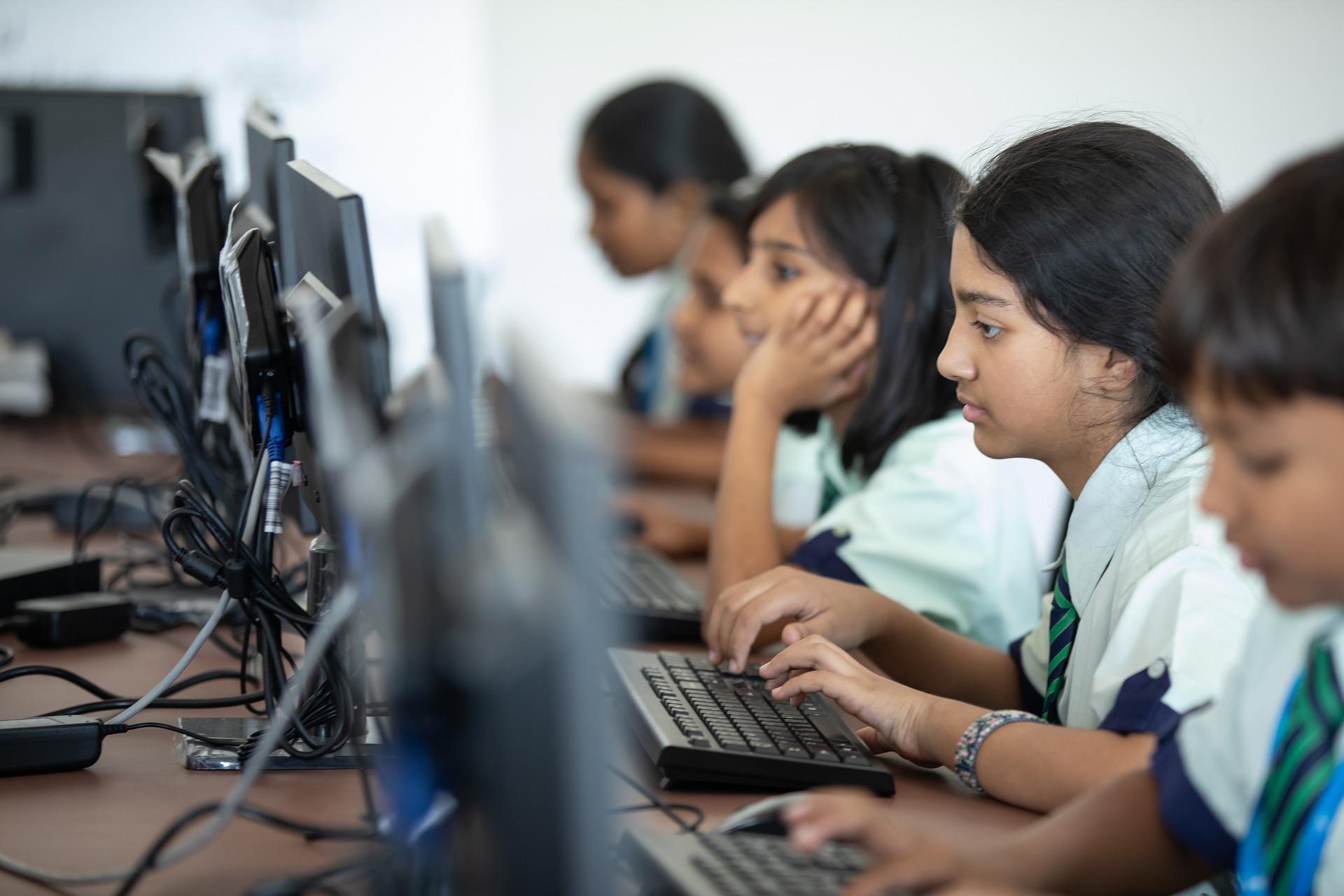
Students in India working with computers. Photo: Anil Sharma,Pixabay.
Sattva works around four key segments: nonprofits, foundations, corporates, and impact funds and social enterprises. They have a few cross-cutting horizontals that are focused on functional areas: research, tech and data, assessments, and recruitment and executive search. They have also established practice areas to go deep into thematic areas such as agriculture, healthcare, education, climate, and digital platforms. The team is distributed across India, the United States, Copenhagen, London and Singapore.
Innovation for Inclusive Growth
Sattva does a significant amount of work across agriculture, entrepreneurship, and skilling/employability to help enable inclusive growth. Throughout everything, they try to integrate a gender lens as much as possible, as there is often a gender divide when it comes to market systems and the strong patriarchy that is prevalent across the ecosystem. In Sattva’s work with funders, they often aim to influence capital to go towards marginalized communities and underserved geographies. For example, a lot of the corporate social responsibility (CSR) income is generated in Mumbai and goes into the state of Maharashtra. Through their clients, Sattva influences about 30% of CSR in India and they often encourage clients to focus on underserved communities in other areas of India.
Diving in a bit deeper, Sattva has a few different levers towards inclusive growth when it comes to agriculture. One is increasing smallholder farmer incomes, by both improving farm productivity and market access. And also enabling the role of farmer producer organizations (FPOs) and cooperatives. They are working to help farmers adopt best practices and climate smart agricultural practices. Through that, they also improve food security and nutrition at the household level. Sattva aims to increase inclusiveness of market systems. There is a significant gender divide when it comes to landholding in India. They also aim to Increase stakeholder collaboration, such as pubic-private partnerships.
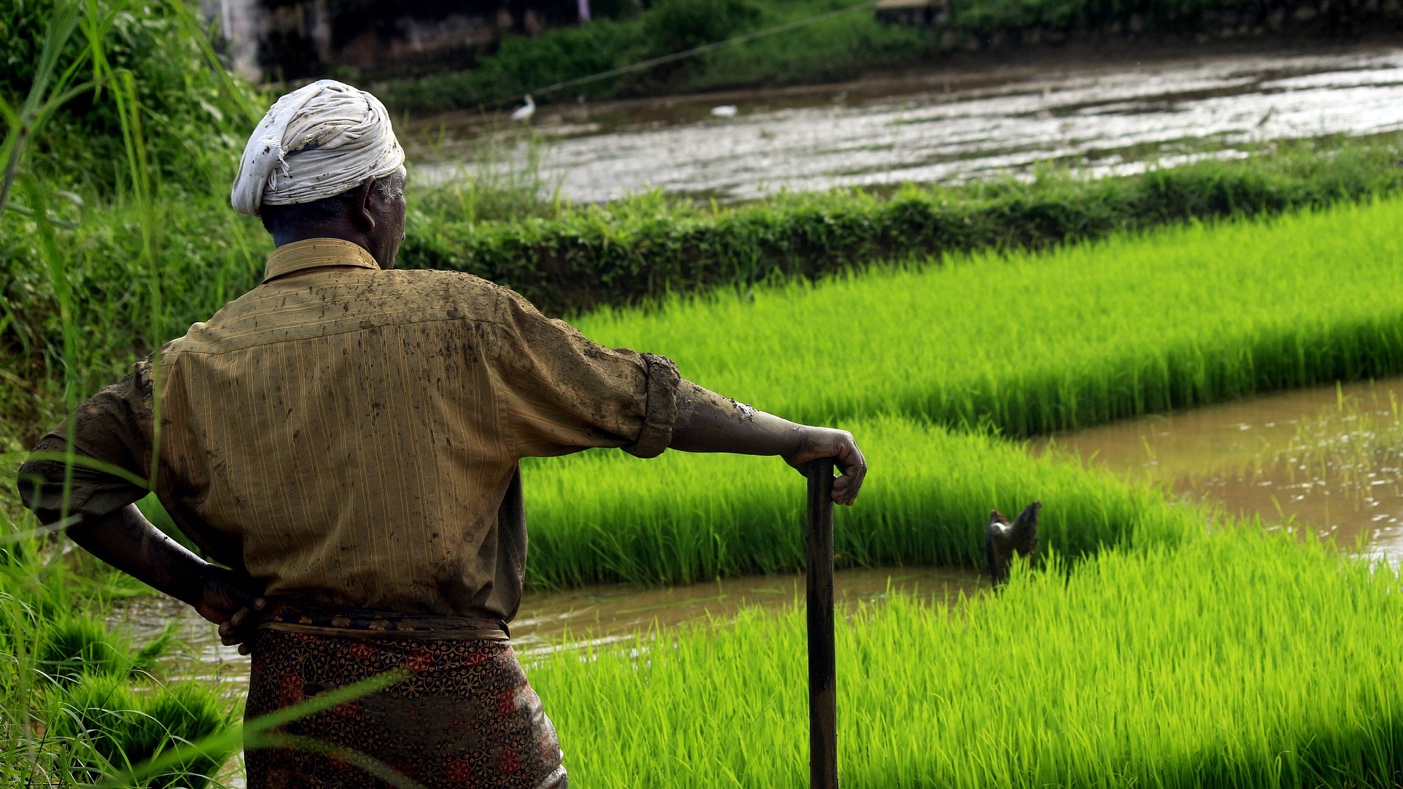
Farmer in India. Photo: Nandhu Kumar, Pixabay.
Sattva has been seeing lots of types of innovations related to inclusive growth in India and beyond. There are product innovations–products catered to low-income, underserved, or marginalized communities. These could be physical, such as low-cost health diagnostic tools and solar lighting systems (especially where communities are not connected to the grid). These can also be non-physical, such as financial products catered to low-income individuals like micro-insurance. There are also a lot of innovations in service delivery. For example, in financial services there is the “JAM Trinity”–Jan Dhan Yojana (government program that enables zero balance bank accounts), Aadhaar (a biometric identity card to ensure the right services get to the right people) and Mobile (enabling people to access mobile financial services). Technology also allows access to knowledge (training farmers on best practices) and information (like current weather patterns).
Livelihoods are generated across these various innovations at every step of the value chain. Technology has a big role to play. This has enabled innovation and access to knowledge, information, products and services. Nonprofits are focused more on sustainability of solutions, and increasingly thinking about their exit criteria. Social enterprises are doing great work here, especially in enabling business model innovations with a market-based approach. Even the larger corporate ecosystem is now tapping into low-income, rural markets given the sheer volumes. Given this whole ecosystem, Sattva is seeing a significant convergence of both philanthropic and mainstream capital, which is creating new opportunities for blended finance.
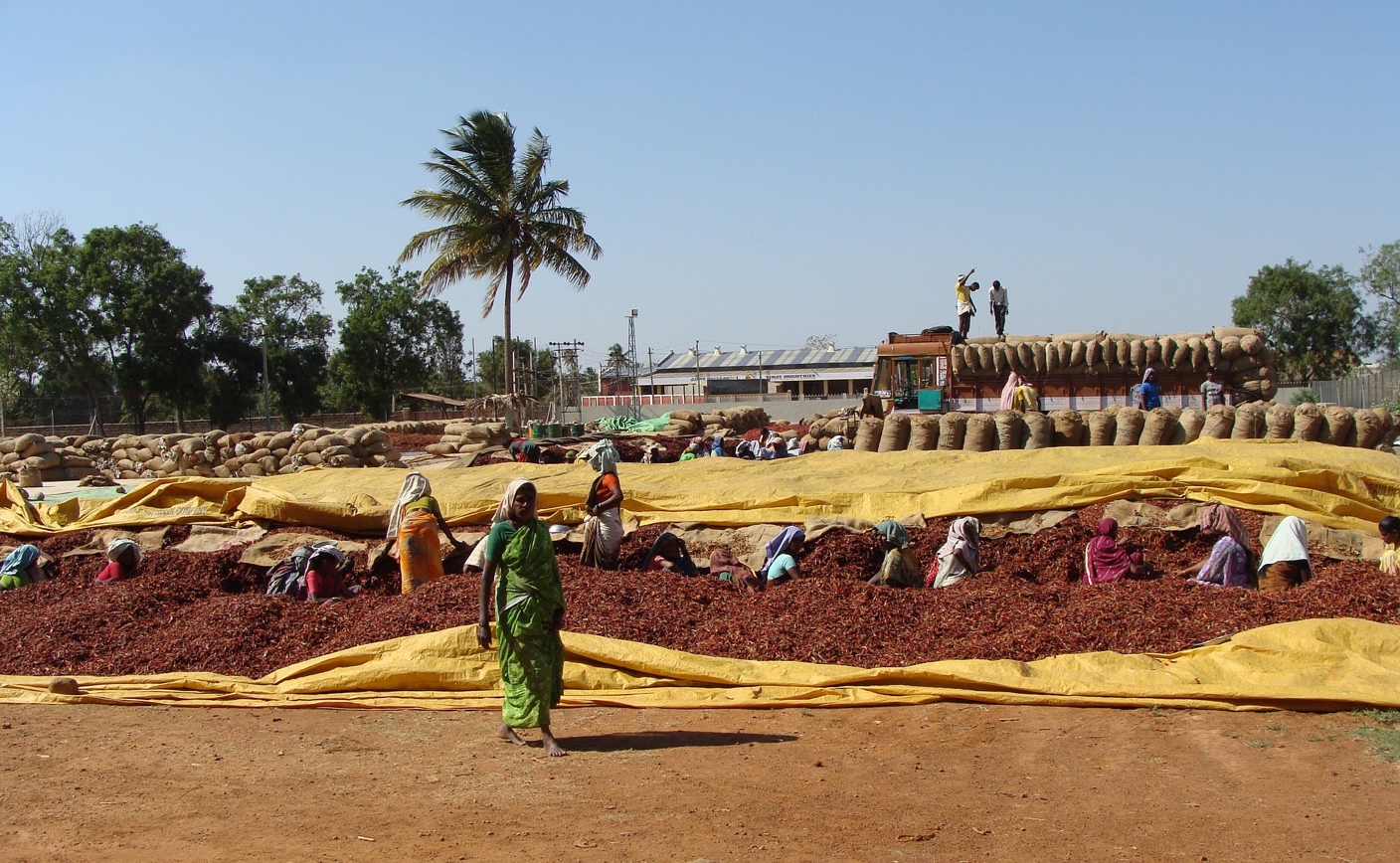
Wholesale chili market in India. Photo: Bishnu Sarangi, Pixabay.
Looking Ahead
Sattva invites anyone with impact-driven goals that might require external support to work with them. This can include research, strategy development, implementation and assessments-related work. They’ve committed to adding value for their partners and crafting win-win relationships. They’re open to like-minded players who have a similar philosophy, focus, and mission on poverty alleviation.
Next, Sattva wants to continue deepening their presence globally. There is so much opportunity to bring change and many players that are doing amazing work. In parallel, they hope to continue to strengthen their domestic presence and influence. Sattva hopes to leverage their institutional knowledge developed on-the-ground to help influence global stakeholders.
Back to Top
Organization Profile
After 51 Years, Opportunity International Defines Their Own Innovation
By constantly shifting the ‘how,’ the organization stays true to its goals—and makes an impact
By Amber Cortes
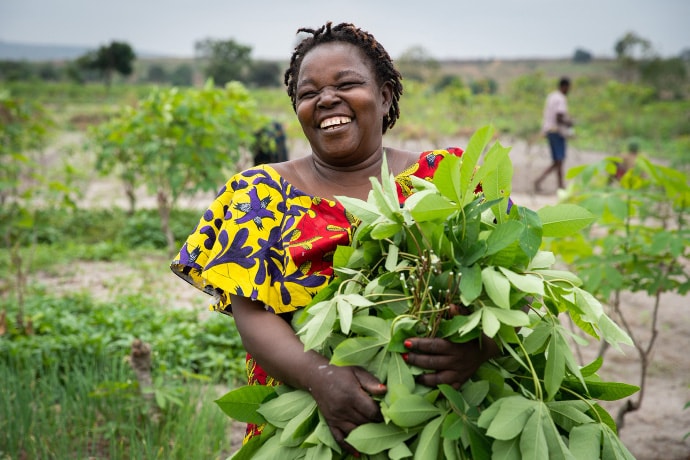
Philomene, a farmer in the DRC. Photo: Opportunity International
Simona Haiduc, Managing Director of Strategic Partnerships, has been at Opportunity International for twenty years, and a few things have stayed the same: like the core of the organization’s mission to empower people living in poverty to transform their lives and build sustainable livelihoods.
But it’s the how, Haiduc says, that is always shifting.
“The innovations and the different approaches to how we get to that ultimate goal of helping our clients climb up the economic ladder, for sure those have changed.”
“And I’ve seen a lot of cool stuff,” Haiduc added.
For Haiduc, it’s the constant adaptability of this 51-year-old-organization that sets it apart—as well as their dynamic approach to finding inclusive and innovative market and business solutions to ending poverty.
Since its founding, Opportunity has helped deploy over $19 billion in capital to millions of micro, small, and medium-sized businesses. They’re currently serving nearly 19 million clients in in 30 countries (focusing primarily on Africa, Latin America, and Asia).
Founded in 1971 by Al Whittaker, former president of Bristol Myers, and David Bussau, an Australian entrepreneur, Opportunity International was one of the first nonprofits to venture into microfinancing.
“But the work that we do actually differs from the traditional microfinance model where it’s just about the loan,” Haiduc explains.
Opportunity International goes beyond the loan to offer a wraparound set of services for their clients—who can be farmers, business owners, and small-scale entrepreneurs. (In fact, 95% of their clients globally are women.)
They provide access to financial services, combined with specialized training and information about markets, and even the digital financial tools to support these services.
Using human-centered design principles and technological innovations, Opportunity International will help their typical client, for example a farmer, open a bank account, find out what crops have the highest market prices and returns, and get connected to buyers for their produce.
“We come in and try to understand their needs holistically and put them at the center of our design, of our solution,” says Haiduc.
Investing in agriculture is risky—along with challenges of weather and fluctuating markets there’s now climate change to deal with.
“So, a lot of players, they’ve just stayed away, especially not looking at the smallholder farmer level. But for us that opportunity, that’s our mission. That’s who we’re called to serve.”
Responding to these risks, Opportunity International has implemented unique solutions, like introducing programs that encourage regenerative agricultural practices to address climate change issues.
Another avenue in their approach to ending poverty is supporting innovative education and employment programs.
Africa is home to the youngest population globally, a growing workforce that needs education and skills to find employment.
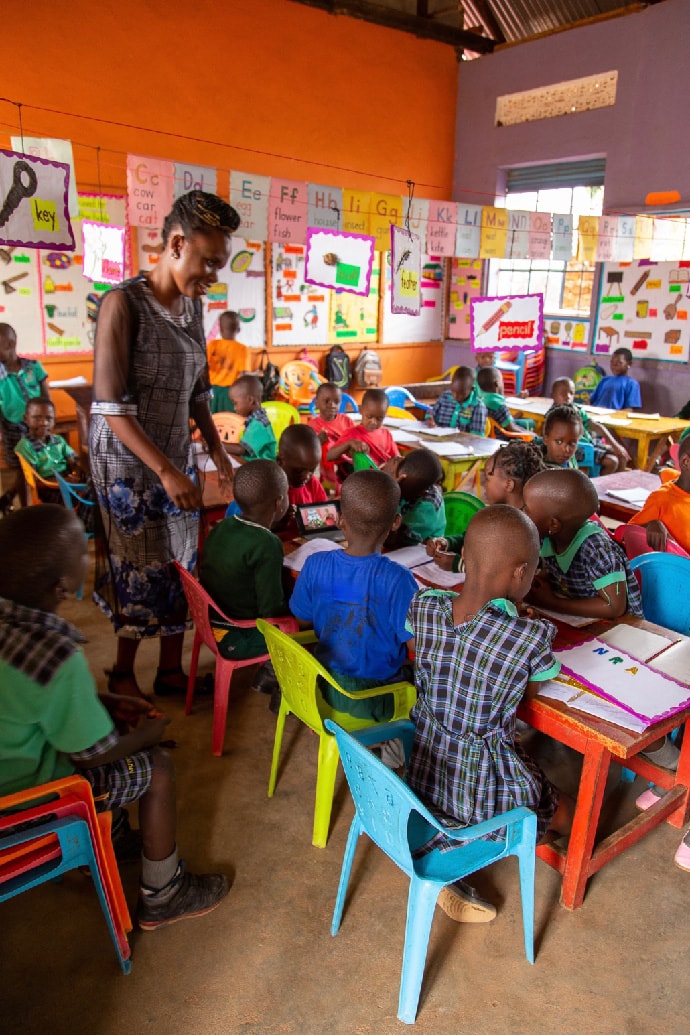
Students in rural Uganda. Photo: Opportunity International.
“Millions of young people come into the job market every year,” Haiduc explains. “And there’s very limited supply of wage employment or formal employment.”
Not only that, but there’s a gap left by governments not prepared to offer public education solutions in hard-to-reach communities. So, Opportunity International finances affordable private education sector to fill that gap by funding the private schools started by local entrepreneurs.
The organization has also worked to provide a good education to students by releasing $500 million in funding to help families send their kids to school and help schools increase their capacity and quality of curriculum.
In fact, Opportunity’s EduFinance program was recently named one of six winners of this year’s WISE Awards for its success in helping to strengthen access to quality education for low-income students in Africa, Asia, and Latin America.
With an eye on the latest employment trends, Opportunity is experimenting with investment in technical and vocational education, and self-employment training models within an expanding digital economy.
“Because we believe that education is a very important stepping stone into employment, and especially into meaningful employment,” says Haiduc.
Innovation isn’t inventing something new, says Haiduc. It’s taking what’s already there and improving it, or connecting the dots through information, delivery, or knowledge channels.
“We think of innovation in many different ways,” Haiduc says.
“A new product innovation, such as comprehensive agricultural finance loans, or going into sectors that nobody wants to go and doing things that might not have been tried before.”
But Opportunity knows that innovation needs to be inclusive, and programs need to adjust to new technologies to give as many people access as possible.
For example, years ago, their ‘60-Minute Strategy’ was intended to bring financial services to clients in remote communities within a 60-minute walk or ride from their home.
They were looking at technology delivery channels like mobile banks in trucks. But now, there is biometric identification and the ultimate innovation for digital financial services: mobile phone banking.
“So, the 60 Minute Strategy became the 1K Strategy, because now people can access services within one kilometer from their home with the use of the phone,” says Haiduc.
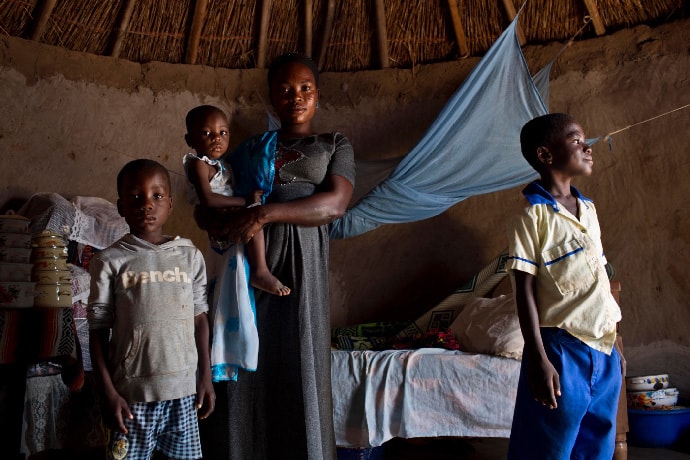
Leila, a farmer in rural Ghana, with her children in their home. Photo: Opportunity International.
As tech evolves and develops, mobile phones get cheaper and more available, and cloud technology and biometrics advance, Opportunity International sees nothing but, well, opportunity.
“We’re firm believers that the technology that’s capable of solving some of the largest development challenges is already available,” says Haiduc.
“We just need to find a way to put it together in a way that solves multiple issues and challenges at the same time. And we think it’s possible.”
Back to Top
Links for September Issue Campaign: Innovation for Inclusive Growth
September Blogs Posts:
Small and Growing Businesses Are the Key to Creating Economic Growth That Matters in India – Upaya Social Ventures
Highlighted Social Posts:
Dalberg: Making Mobile Money More Inclusive
Dalberg, in partnership with Bill & Melinda Gates Foundation and Rockefeller Philanthropy Advisors supported the incubation and launch of AfricaNenda, an organization which advocates for, and provides technical assistance to, institutions building instant and more inclusive payment systems for mobile money.
Microsoft: Building a more inclusive skills-based economy: The next steps for our global skills initiative
Microsoft has a global skills initiative that has reached 30 million people.
Mifos: Mifos and MOSIP to collaborate on next evolution of OpenG2P
Do you know about OpenG2P? It’s a digital public good digitizing large scale cash transfers with open-source building blocks for global use. This is being created by our member Mifos Initiative along with partners to help empower the base of the pyramid.
Hands for Peacemaking: The value of a good education is priceless
The value of a good education is priceless. It is the bedrock and foundation for empowerment and opportunity. Read the wonderful story of Tomas Jose who was able to see his dream come true with the help of our member, Hands for Peacemaking Foundation.
Concern Worldwide: Livelihoods & Financial Empowerment
Per year, our member, Concern Worldwide, positively affects 4+ million people through their LIVELIHOODS & FINANCIAL EMPOWERMENT programs. From social protection and support, to climate-smart agriculture, to village savings and loan programs – and more – read how they do it!
Capria Ventures: Bringing economic opportunity to the unbanked
Our member, Capria Ventures, is the leading venture network investing in extraordinary startups of the Global South collaborating to scale. One of the organizations in their portfolio is Destacame, who has built a free online platform that’s helped 2.5 million people monitor and improve their financial health in Mexico and Chile
Resonance: How to Build a Sustainable Agriculture System in Emerging Markets
Three lessons on how to tap partnerships as a powerful tool to advance sustainable agriculture in emerging markets
World Concern: Economic Empowerment
Our member, World Concern, has a great approach to economic development and providing opportunity: Savings Groups, Micro Loans, and Vocational Training.
Spreeha Foundation: Kusholi
Our member, Spreeha Foundation, has a great approach to economic development and providing opportunity: KUSHOLI. Kusholi or Skills for Decent Employment. Kusholi, or ‘the skillful’, aims to equip individuals with the skill sets necessary for the competitive job market.
Global Partnerships: Global Partnerships Launches the Impact-First Growth Fund
The fund is designed to support high-impact social enterprises that are well-positioned not only to manage through pandemic-related challenges, but also to come out on the other side with viable plans to grow, deepen inclusion, and expand impact.
Agros International: Making More With Less | What Climate-Smart Means When It Comes to Fertilizers
Our member, Agros International, is helping ensure long life and health for the soil and water supplies by implementing climate-smart bio-fertilizers. This will perpetuate opportunities and growth for communities in Nicaragua.
S M Sehgal Foundation: How Is Digital Awareness Propelling Rural Development In India?
Digital India was launched in 2015 as a dream project of the Indian government. The vision was to transform rural India into a knowledge and digitally empowered society through dissemination of information and digital access to government services. Our member, S M Sehgal Foundation, has been making huge strides towards this vision.
Opportunity International: Opportunity in Nigeria’s Schools
Our member, Opportunity International, is providing education and opportunity with their EduQuality and EduFinance programs. Check out this post to see how they are succeeding with these amazing programs in Nigeria.
Mercy Corps: Mercy Corps Ventures
Do you know about Mercy Corps Ventures? “Mercy Corps Ventures invests in and catalyzes venture-led solutions to increase the resilience of underserved individuals and communities. Founded in 2015 as the impact investing arm of Mercy Corps, we’ve supported 38 early-stage ventures to scale and raise over $355 million in follow-on capital.”
Resonance: Partnering with Multinational Companies to Unlock Market Systems Development
A great article on how multinational companies can engage more thoughtfully for environmental, social, and economic impact.
Sattva Consulting: Addressing the Low Female Labour Force Participation in India
Sattva Consulting, studied and analyzed Fossil Foundation’s SelectHER programme and gained some valuable insights which they share.
Back to Top
Welcome New Members
Please welcome our newest Global Washington members. Take a moment to familiarize yourself with their work and consider opportunities for support and collaboration!
Global Rights Advocacy
Global Rights Advocacy’s mission is to provide victims access to international human rights mechanisms through high quality legal defense and advocacy strategies.
Globalrightsadvocacy.org
SightLife
SightLife is a global health organization dedicated to the elimination of corneal blindness.
Sightlife.org
Back to Top
Member Events
October 8: Save the Date: Mission Africa’s 2022 Annual Fundraiser
October 8: The Rose International Fund for Children | ‘Lifting Those Left Behind’ Dinner Gala
October 3 – 9: The Max Foundation: Max Global Experience Cambodia
October 8: Save The Date: Mission Africa’s 2022 Annual Fundraiser
October 15: The Hunger Project 2022 Fall Event: The Future is Calling
October 19 – 21: NetHope Global Summit 2022
October 21: GlobalPDX: 2022 Conference
Back to Top
Career Center
Manager of Communications & Special Events Foundation for International Understanding Through Students (FIUTS)
Manager of Education Programs Foundation for International Understanding Through Students (FIUTS)
Part-time Project Manager Remote Energy
Internship Opportunity at the Chandler Foundation Chandler Foundation
HR Coordinator VillageReach
Investor Relations Assistant – Seattle Global Partnerships
Coordinator, Community Programs and Communications World Affairs Council
Develpment & Marketing Associate Upaya Social Ventures
Director, Institutional Partnerships Upaya Social Ventures
Investor Relations Assistant Global Partnerships
Check out the GlobalWA Job Board for the latest openings.
Back to Top
GlobalWA Events
September 29: Q3 Final Mile meeting: AI Applications for Global Health and Supply Chains – Drew Arenth from MACRO EYES
October 27: Leading in Times of Transformation
December 7-8: Goalmakers Conference
Back to Top
Welcome to the August 2022 issue of the Global Washington newsletter.
IN THIS ISSUE
Letter from our Executive Director

The U.S. Congress just passed landmark legislation that includes climate mitigation and adaptation funding. This is a hopeful step in the fight against climate change that has a disproportionate negative impact on those living in low- and middle-income countries. Climate impacts such as drought, flooding, and increased wildfires are starting to become a universally shared experience.
In low- and middle-income countries, several GlobalWA members are working with local communities to build resiliency to climate change and create climate smart clean energy. In this issue campaign, you can read about Mercy Corps who is working with farmers on climate smart agriculture and cash assistance for emergency relief in the Horn of Africa. You can also read about our Goalmaker this month Rachel McMonagle from Landesa who was in Ukraine in 2013 where she discovered the importance of land rights in building climate resilient farmlands. Learn more about these GlobalWA members and others in the articles below.
Also this month, join us at our Summer Happy Hour co-hosted with Global Leadership Forum, and World Affairs Council/YPIN.
Coming up next month, save the date of September 8 for a Global Washington All Member Meeting. If you are a current member, you will receive more information shortly. Join us to re-connect, re-energize, and re-imagine the future of global development!
And, in case you missed it, registration for the 2022 Goalmakers Annual Conference is now open. Our two-day conference will be both virtual and in-person in Seattle. I hope you will join us December 7 and 8, 2022. More information here.

Kristen Dailey
Executive Director
Back to Top
Issue Brief
How We Weather Storms
Impactful Approaches to Building Disaster Resilience in Climate Change
By Aneesh Chatterjee
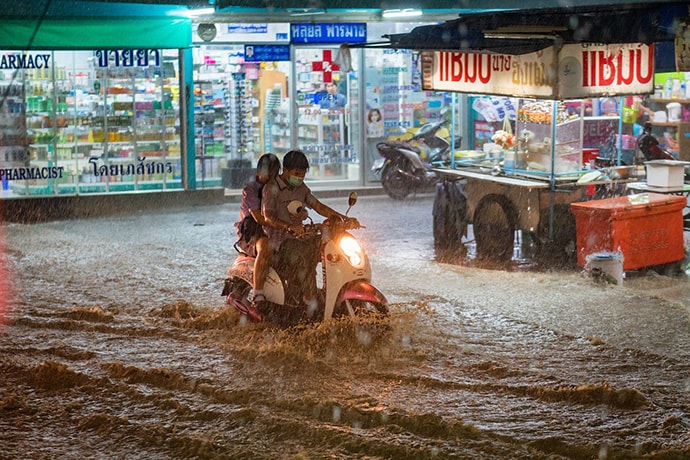
Flooding in Thailand. Photo: Pixabay/Arek Socha.
On July 8th, 2021, the first Hydromet Gap Report was published to illustrate how far society stands from fostering a stable and beneficial global environment. The hydromet umbrella – encompassing hydrological, climate-based, weather, and other natural systems-related services – was pitched in the report as the strongest framework upon which to base mandates for effective climate action. One standout service underlined in the report is the implementation of effective weather warning systems. Tools are proposed by the Alliance for Hydromet Development (ADH) – founded in 2019 at COP25 – to equip at-risk regions with effective capacity upgrades to their climate response systems, including diagnostics tools to evaluate a country’s climate response capacities, funding channels to fuel innovation, regular reports to track progress. Effective weather response systems are expected to drastically reduce widespread destruction and loss of life in developing nations caused by the rising frequency and severity of natural disasters, brought on by rampant climate change. As such, the ADH is an excellent embodiment of SDG 13 – showcasing what effective climate action entails.
Palpable Necessity
The race to affordable access to clean energy sources – the core of SDG 7 – is another of many examples illustrating how climate action manifests. The steps necessary to strengthen responsive systems that can mitigate the impact of natural disasters are more necessary today than ever before. A Vision of Humanity article points out that, according to a study by the Institute for Economics and Peace, the frequency of natural disasters had grown from 39 in 1900 to 396 in 2019. In 2005, flooding-related incidents alone numbered at 442, with 90,000 casualties and over 160 million survivors in need of help across the globe. With droughts, storms, and floods bringing the most destructive consequences of climate change, the cost of recuperation has risen from an average of $49 million in the 1970s to a daily economic pitfall of $383 million across the world in the 2010s. To both reduce the cost of resilience and prevent further loss of life, effective climate response systems are critical to a sustainable future.
The following GlobalWA members exemplify standout climate action efforts, illustrating how current strategies to strengthen resilience and detect disasters are being implemented.
Pioneering Resilience through High-Impact Partnerships

Partnerships have been a cornerstone for many climate action initiatives taken up by institutions. A 2020 Climate Commitment publication by Dalberg Global Development Advisors encompassed a host of approaches to work toward resilience against natural disasters as well as reduce the exacerbation of climate change. Some of these partnerships have founded carbon and plastic footprint reduction programs through partnerships with Ecometrica and Climate Impact Partners, with successful initiatives in Rwanda, Mexico, India, Kenya, and Columbia; plastic collection and recycling through a partnership with the rePurpose Global program (successfully implemented in Kenya through a recycling facility operated by TakaTaka Solutions), and efforts to study the full extent of pollution in the Mediterranean Sea in partnership with the World Wildlife Fund, to name a few. Dalberg has also partnered with BeZero Carbon in their mission to manifest operational transparency and yield reliable data from organizations participating in the carbon control effort. These partnerships exemplify Dalberg’s commitment to the prevention of further climate destabilization and the strengthening of responsive strategies: through a ‘climate lens’ method of operations, Dalberg’s projects prioritize environmental impact in every mandate, even if it means turning down potential projects that do not comply with footprint targets.
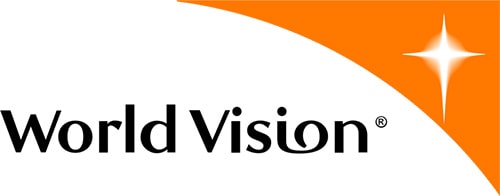
Partnerships as concise as two active parties are also capable of making significant changes, as is evident in World Vision’s partnership with the world’s largest manufacturer of water pumps, Grundfos. Together, these organizations have implemented the provision of clean water to nearly 2 million people across sub-Saharan Africa through a five-year program launched in 2015. Even at the precipice of the pandemic, this initiative has mitigated the need to walk extraneous distances for drinkable water, instead bringing clean water to localities through solar powered, environmentally friendly Grundfos pumps. This project is a clear indicator that a joint initiative with as many as two parties can make significant progress in building climate change resilience.

Amazon’s 2019 Climate Pledge initiative, co-founded with Global Optimism, shows one of the most robust and ambitious attempts in combating climate change: to meet the Paris Agreement’s global reduction targets – net zero carbon emissions – by 2040, ten years earlier than the original milestone. With 322 signatories, including Microsoft, Verizon, Unilever, and Mercedes-Benz, the Climate Pledge aims to achieve this through rigorous reporting of carbon emissions, changing business strategies to incorporate sustainable, innovative tactics in favor of traditional practices, focusing on renewable assets, and eliminating current emission rates with tangible, measurable outcomes. The scale of the Climate Pledge is evident in the number of high-profile organizations willing to hold themselves accountable as signatories, and wholly represents the value of partnerships in taking enforceable climate action.
Systemic Innovation, Broad and Focused

A unique, systemic approach to climate action is the Future Rising Fellowship program launched by Girl Rising. The program acknowledges women as disproportionately affected victims of climate crises, and empowers young girls through education programs, professional development expertise, and practical resources to establish climate-friendly, sustainable enterprises at grassroots levels. The Fellowship establishes tangible solutions to specific issues, such as the core focus on improving food and water security in specific localities for the 2022 program. Prior program focuses have included mangrove conservation in Costa Rica, sustainable fishing in the Philippines, air pollution reduction in Mongolia, and low-impact, sustainable agriculture in Uganda and Kenya. Using education as a tool to address climate resilience is a broad-spectrum, systemic approach that simultaneously allows Fellows to address specific climate issues, making this program one of the most versatile ways to drive climate action forward.

Heifer International’s Power, Water, Internet (PWI) Global initiative is an outstanding example of broad-spectrum systemic changes brought on across sectors. With active programs in over 20 countries, Heifer International aims to incorporate grassroots-level sustainable agricultural training, innovative technologies, and low-cost, high-yield farming tactics; on a larger scale, they aim to upgrade vital systems (such as water treatment methods); beyond that, they target broader crises by introducing renewable energy sources for locals, reduced costs of implementation, and greater access to funding resources for farmers.
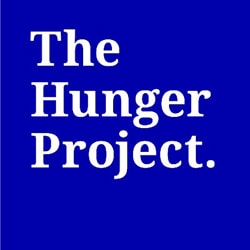
Another multidisciplinary systems-based approach is seen in the environmental conservation efforts by The Hunger Project (THP). Through specialized programs across target regions, THP has established practical farming and sustainable irrigation tactics, including drip irrigation, composting, and intercropping, enabling local farmers to farm sustainably with higher crop yields. Beyond hands-on practices, worldwide training programs by THP emboldens citizens with the knowledge of sustainability practices, the ability to access financing resources for their endeavors, leadership training, and the encouragement of advocacy so they may demand sustainable policy approaches from their governments. Across countries, THP has also established tree nurseries to counteract deforestation, replanting trees to improve soil erosion, create effective carbon sinks, and enrich local villages with entrepreneurial opportunities through income from fruit yields. A multi-sector mandate to addressing climate action, from training the individual to creating systems of economic and social engagement, is the hallmark of an effective systemic approach.
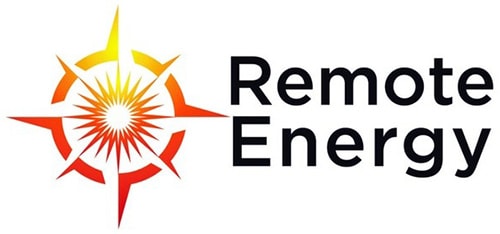
While aforementioned members engage in multi-sector initiatives, Remote Energy’s unique proposal for climate action takes a specialized approach to training communities in photovoltaics, heralding disruptive solar technologies in crisis-prone regions. Acknowledging the disparities among races, genders, and economic standings as a factor in resource access, Remote Energy proposes specialized training streams for women, instructional resources for Native Americans, mentorship programs, technical skills instruction, and online classes. Working with local institutions in target regions, Remote Energy also implements training facilities to encourage hands-on lessons in handling photovoltaic technology and understanding the nuances of solar energy. With a streamlined focus on a specific area in sustainability, Remote Energy brings high-impact changes in climate resilience through rapid shifts to renewable energy, propagated from the ground up by connecting people with hands-on training and resources.
Irrefutably Interdisciplinary
Given how versatile and expansive the host of discussed initiatives are, the evident common thread among them is the crucial need for joint, partnered, interdisciplinary action across multiple sectors, with specialized and decentralized focus allotted to each region of priority. Climate action cannot be undertaken without unconditional cooperation between parties, and the members highlighted exemplify the value of such collaborative, disruptive, and focused efforts to build resilience against climate change.
In addition to the above member organizations, the following members are working towards the sustainable development goals of Climate Action (SDG 13) and Affordable and Clean Energy (SDG 7) through their programs.
Construction for Change
Construction for Change is a nonprofit construction management organization. Our unique model of service provides the highest possible value to our Project Partners. We leverage the expertise of world class design firms and construction professionals who make our work possible. This model allows us to streamline costs without compromising quality.
We work for and with the communities we serve. We recruit local labor and offer these talented workers the opportunity to expand their skills in the construction trades.
We build sustainably, leverage existing supply chains and use energy-efficient technologies like solar power.
We value equity and inclusion and prioritize women and Black, Indigenous and People of Color (BIPOC) as Project Managers on our job sites.
Dalberg Advisors
Dalberg is a leading social impact advisory group with a mission to build a more inclusive and sustainable world. Our climate practice supports philanthropic, corporate, nonprofit and government clients on a range of issues including clean energy investment, regenerative agriculture, natural capital solutions, and climate resilience in the built environment.
For example, Dalberg is currently supporting Colombia’s Energy for Peace initiative by structuring creative financing solutions that crowd in private capital to build and operate sustainable solar mini-grids in conflict-affected parts of the country. On behalf of the World Economic Forum, we designed and now serve as secretariat for the African Circular Economy Alliance, which aims to accelerate circular economy investments on the continent alongside economic development imperatives. We have also partnered with World Wildlife Fund (WWF) to produce a number of policy advocacy reports including The True Cost of Plastic, on the need for a global treaty on marine plastic pollution; Halve Humanity’s Footprint on Nature to Safeguard Our Future, on the economic drivers of biodiversity loss; and Working with Nature to Protect People, on nature-based solutions for disaster risk reduction. Additionally, we support leading global companies on supply chain sustainability solutions and investments in carbon-neutral operations.
In its own global operations, Dalberg is a carbon- and plastic-neutral company that is committed to reaching net zero by 2025. Dalberg is a signatory to the UN Global Compact Business Ambition for 1.5 degrees, pledging to adhere to the Paris Climate Agreement by ensuring we do not contribute to the warming of the planet beyond 1.5 degrees.
Earthworm Foundation
Earthworm Foundation (EF) is an impact-driven non-profit that partners with businesses, civil society, communities and governments to improve the way commodities are produced, such as cocoa, packaging, palm oil, rubber and more. Experts in supply chains, agriculture, social issues, and environmental protection work across five continents to improve conditions for people, forests and soils impacted by supply chains. EF focuses on implementing responsible sourcing commitments in supply chains and innovating practical solutions to social and environmental challenges across sourcing landscapes. Since 2015, EF field teams have engaged 21,456 farmers, indirectly impacting 60,000 farmers and family members, to help them improve their resilience against climate and market fluctuations. EF also works with 244 partner companies and organizations to protect more than 53,000 hectares of key habitats and forests in places such as Brazil, Dominican Republic, Ecuador, France, Ghana, India, Indonesia, Ivory Coast, Malaysia, Peru, Solomon Islands, Thailand, and Vietnam. In 2016, EF and Airbus co-developed Starling, a satellite monitoring platform linking space technology with the supply chain expertise necessary to drive social and environmental change. Starling provides robust monitoring of forest loss, a key driver of climate change. It currently monitors more than 22 countries and 113 provinces, or over 3.6 million sq mi, and incorporates 20 years of historical data and trends. The platform has generated more than two million alerts and 180,000 images.
Friendly Water for the World
We’ve identified the seven most sought-after essential resources missing in struggling and impoverished Eastern and Southern African communities impacted by climate change. They are: Large Scale Water Security; Clean Water; Improved Sanitation; Water Conserving Gardening; Hygiene Products; Safer Cooking; and Better Building Materials.
In response to these challenges, we offer a 25,000-liter built-on-site Rainwater Catchment Tank; Renewable and Affordable Water Filtration systems; Composting Latrines; Permagardens; Liquid Soap; subsidized Rocket Stoves and the Interlocking Stabilized Soil Block (ISSB), a revolutionary product that can be used in place of a fired brick or concrete block (in fact, our Rainwater Catchment Tank and Composting Latrine are built with ISSB bricks).
All these “climate change mitigating” technologies are taught by our local-staff and produced by members of the partner community. This partnership works because no one is left behind, everyone has a role, and everyone has the opportunity to work and be paid.
The program is rigorous, lasts a minimum of five years and is only initiated after a months-long process of Community Engagement where, as a group, we hold a series of open meetings with the villages. We reach consensus on what we can do, how we’ll do it and when we’ll do it. Together, all this works because we work together.
This year we are on target to complete 1,000,000 liters of water storage in rural communities in Africa, next year we would like to build 2,000,000 liters of storage. Thanks for your support.
FSC Investments and Partnerships
FSC Investments & Partnerships (FSC I&P) is working alongside FSC International and its network partners to safeguard healthy forests, a critical nature-based solution to climate change. FSC aims to bring forests to the center of climate action by improving forest management, restoring ecosystems, and conserving critical areas.
FSC is currently working to create and deliver scalable, effective, and credible climate solutions to help companies and forest managers understand and offset their climate impact and achieve their net zero emissions targets. This includes expanding its existing tool to incentivize restoration and conservation (The Ecosystem Services Procedure) and developing The Restoration Toolbox, an innovative and comprehensive set of tools for implementing, monitoring, and verifying forest restoration work.
FSC I&P is also building an extensive network of partners that will collaborate on the co-creation of solutions for climate change mitigation and adaptation, forest landscape restoration, and climate finance. As the world’s most trusted system for the certification of sustainable forest management, FSC is uniquely positioned to bring together varied stakeholders for collaborative solutions. FSC is using the power of incentives to keep forests standing, protect valuable ecosystem services, and restore degraded landscapes—all critical in combating climate change.
Future of Fish
Overfishing is a distinctly human issue. Our oceans are in crisis at a time when 37 percent of the global population lives in coastal communities.
Future of Fish develops platforms and solutions that reduce complexity and enable stakeholders to engage. We look at ocean challenges, see the system underlying them and build collaborations to effectively apply resources for fisheries transformation. We bring a wide range of stakeholders to the table to facilitate connections, align strategies and match resources to projects. Given the variety of global and local stakeholders, creative collaboration presents a significant opportunity to share the risks inherent in change creation. Learn more.
Gambia Health Education Liaison Project (Gambia HELP)
Gambia Health Education Liaison Project, also known as GambiaHELP, exists to enable communities in Gambia to protect, conserve, and improve their own health, the health of their community, and their natural environment.
Landesa
Landesa’s efforts to strengthen land rights hold promise for climate change adaptation and mitigation, environmental conservation, and community wellbeing. When rural and Indigenous communities are equipped with secure land rights that are gender-equal and socially inclusive, they are better able to make investments – in sustainable farming techniques like terracing, improved irrigation, and agroforestry – that conserve soil and water and build resilience to climate change. Beyond a role in climate adaptation, there is evidence that secure land rights can help advance efforts on climate mitigation, particularly through preservation of forests and land restoration practices. We are uniquely placed to catalyze gender equity within the climate justice movement, and we advocate with women farmers and support governments to apply a gender equity and social inclusion lens to land administration. Read more.
Oxfam America
Oxfam’s mission is to fight inequality to end poverty and injustice. That’s why Oxfam advocates for climate action to protect the rights and livelihoods of people most affected by the climate crisis. We fight for government action to help communities cope with climate impacts and compensate them for their losses. We call on governments to shift public dollars from fossil fuel subsidies and to mandate and fund renewable energy through a just transition that protects the livelihoods and rights of workers and communities. We pressure wealthy corporations to lower pollution across their global operations.
We also champion people on the front lines of a changing climate who are creating their own solutions to the crisis. In places where fewer crops survive every planting season and ecosystems are at risk, we work with farmers and fishing communities to restore degraded land and habitats as well as expand opportunity through alternative agricultural practices. We support Indigenous Peoples and women in communities under threat from deforestation for industrial food production and from fossil fuel extraction that pollutes the land and water they rely on. We collaborate with partners in the US and globally to ensure that economic, racial, and gender justice are at the heart of climate action.
Remote Energy – their work to train on solar installation is climate action: Remote Energy
Path from Poverty
The impact of Path From Poverty’s work is seen in solutions to tangible problems like access to clean water and sustainable energy for entire families, and increasing the earning capacity of women striving to lift themselves and their families out of poverty. But the impact doesn’t stop there. In the process leaders are created, entrepreneurs are born and groups of women are becoming powerful agents for change in their communities. For example, read about Path From Poverty Solar Power program.
Seattle Aquarium
Guided by our mission and values, the Aquarium is committed to developing a strong foundation for long-lasting and mutually beneficial partnerships with Coast Salish and Urban Native peoples as well as other Indigenous communities so we can conserve our one world ocean.
We strive to bring families and the community together in awe and understanding of the ocean and its importance to life on Earth.
Beautiful, majestic and teeming with a rich diversity of life, our precious Puget Sound is nevertheless in trouble. Our goal is for every visitor to the Aquarium to come away with new knowledge about the life dwelling within the Sound, as well as what can be done to help preserve it. Learn more.
Snow Leopard Trust
The Snow Leopard Trust aims to protect this endangered cat through community-based conservation projects that are based on an improved scientific understanding of snow leopard behavior, needs, habitats and threats. Learn more.
Back to Top
Organization Profile
Mercy Corps
Climate Change Affects Every Community Mercy Corps Works With
By Tyler LePard
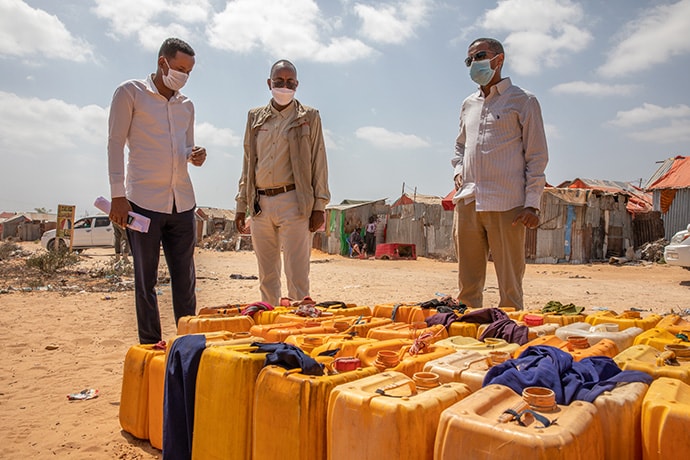
Photo credit: Mercy Corps
All of us are impacted, one way or another, by climate change. But the communities in the Horn of Africa–in countries like Somalia, Kenya, and Ethiopia–are on the front lines of the climate crisis, even though they have not contributed very much to global CO2 emissions. Climate change has had devastating impacts in that part of the world. Catastrophic droughts, flooding, and other rapidly accelerating natural disasters have been demolishing people’s lives and livelihoods, and exacerbating conflict.
Mercy Corps works with the people and communities who are on the frontlines of the climate crisis, and those at the forefront of climate innovation, to find a sustainable way forward together. Founded in 1979 in Seattle, the organization was set up to respond to the refugee crisis in Cambodia. Over the years, Mercy Corps expanded its work into Sudan and other places. Today, Mercy Corps works in 40 countries around world, and has a staff of more than 5,400 team members who work together to address issues of global poverty and injustice. They’re committed to creating global change through local impact — 84% of Mercy Corps’ team members are from the countries where they work.
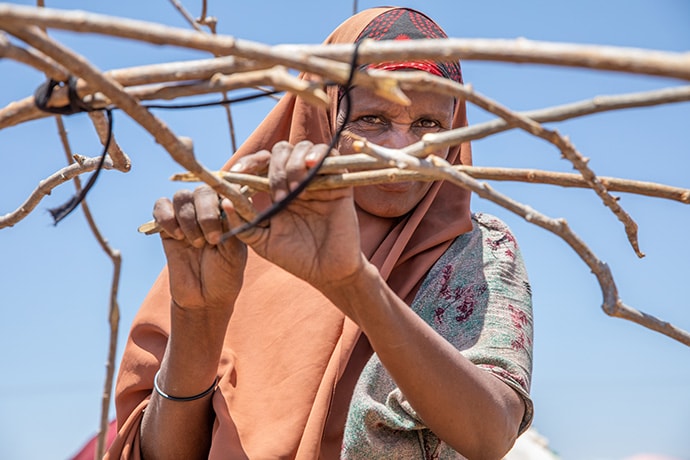
Photo credit: Mercy Corps
Every community that Mercy Corps works with is dealing in real time with the impacts of climate change. When they address poverty, conflict, or hunger, they also have to understand how climate change is affecting different communities and compounding each of these areas to worsen existing crisis. Mercy corps’ work on climate justice is focused on helping support communities to cope with the impact of climate change and, over time, to adapt their livelihood to these different forces. The ultimate goal is for communities to thrive in the face of the new climate and new realities. Mercy Corps works with communities understand the effects of climate change and how they can work together within their community to adapt. This looks different in all the different places where they work.
One way that Mercy Corps works on climate justice issues is by supporting local decision makers and government authorities to have accurate information and forecasts about the longer term implications of climate change and how to expect their communities to change over the next 10, 20, and 30 years so that they can make decisions around natural resource management and infrastructure construction that will help to support that community to better adapt.
In Kenya, Mercy Corps partnered with NASA to provide farmers with access to information about more accurate weather forecasts, as well as information about how they can adapt their livelihoods in the light of climate change. This includes helping farmers understand what types of seeds are better adapted to the changing climate and how they can protect their fields and change their farming practices so that they’re less impacted by flooding.
Mercy Corps is providing both immediate assistance to alleviate hunger and meet basic needs, while also looking at what they can do to act in smart way that helps build resilience and promotes sustainable development.
This is essential, especially in the Horn of Africa, so that communities are better prepared to cope with the next drought that inevitably lies ahead. In addition to providing cash assistance that helps vulnerable families meet their own unique profile of basic needs and decide on the best use of those resources, Mercy Corps addresses malnutrition, increasing access to water, and working to secure livelihoods of pastoralist and agro-pastoralist families with assistance such as veterinary services and access to supplementary feed to keep remaining livestock alive. For longer-term resilience building and development, Mercy Corps partners with communities, with the private sector, and with local government authorities in areas such as natural resource management and planning, peace building, and economic development.
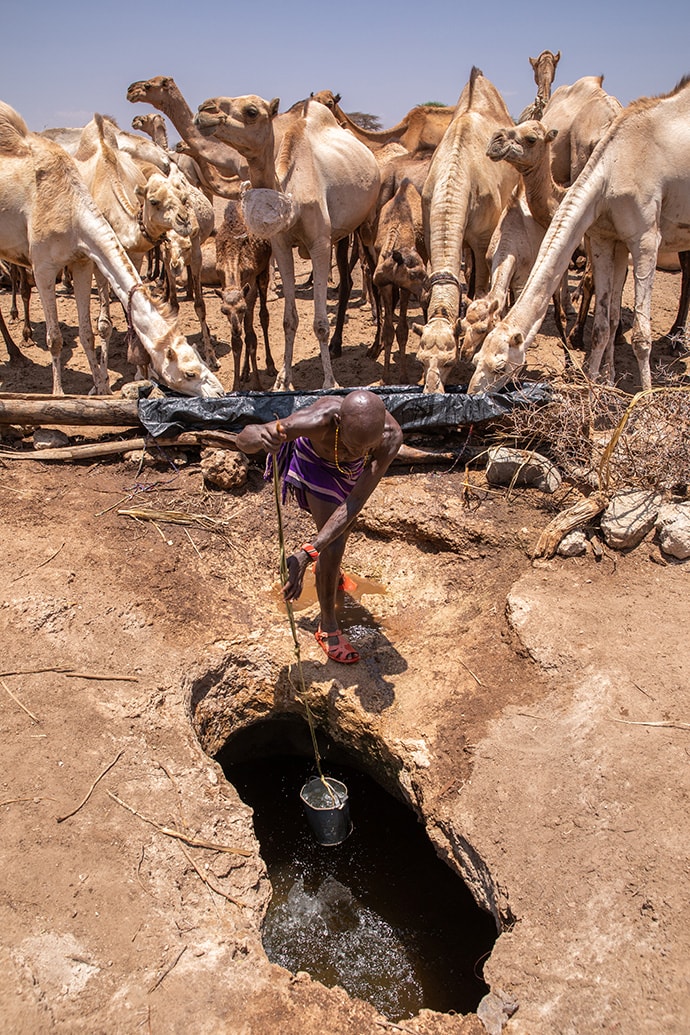
Photo credit: Mercy Corps
The Horn of Africa has seen an increasing frequency of severe drought events over the last decade. While drought has always been a risk in the region, due to climate change, there has been increasing frequency and severity. What that means is that the environment and communities have less time to recover between these episodes. Which means there is accelerating degradation and increasing vulnerability for the populations whose lives and livelihoods rely on the land.
In the southern part of Ethiopia, Mercy Corps staff recently visited an informal settlement of more than 600 families who moved to a peri-urban area to have greater access to assistance. These families had previously relied on a pastoral way of life, migrating with their livestock in search of pasture and water. But, given the severity and how prolonged the current drought is, these resources have diminished severely. The majority of these families have lost all of their livestock, which is not only a loss of livelihood, but is also critical loss of nutrition for this community. In these locations, even though they’ve made the move to peri-urban areas, assistance is difficult to come by and human survival is extremely precarious. Families have been on the edge of starvation. Mercy Corps had provided cash assistance in this area and families said that it was this cash assistance that was the primary thing feeding the community overall. Mercy Corps staff said that it’s an incredibly difficult situation that urgently needs more attention and resource mobilization. This is just one example from one community that’s an example of a broader trend taking place across Ethiopia, Somalia, and Kenya.
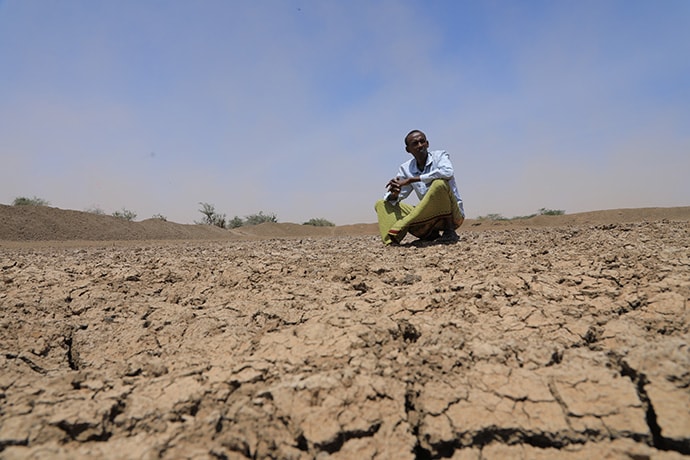
Photo credit: Mercy Corps
The drought is just one layer that is compounding stress on top of the other challenges that communities are facing in the region. The COVID-19 pandemic had long-lasting effects on the economy, which are now being made worse by the war in Ukraine. The Horn of Africa also has a number of challenging governance conflicts that makes it much more challenging to mobilize an effective response to crises and further marginalize vulnerable communities. This leads to greater difficulty accessing assistance as a result.
Like communities all around the world, when the pandemic first started Mercy Corps struggled to understand how to keep their team and communities safe and continue to provide the life-saving assistance that communities rely on. The COVID pandemic made their work more complicated, in terms of logistics and how they could safely deliver assistance, but also in terms of how to keep their teams connected and continue to drive a connected and inclusive environment for their team members. The pandemic was another shock that was layering on top of conflict, food insecurity, hunger, natural disasters, all these ongoing shocks that affect these communities. This pushed Mercy Corps to think outside the box and find new solutions and think of ways they can equip communities to cope with the pandemic and keep themselves and their families safe.
Two of the major issues Mercy Corps saw in communities in Africa and around the world were:
- Misinformation and lack of trust in information they were receiving, particularly information about the COVID-19 vaccines
- Access to hygiene – in communities where there’s already lack of access to water and sanitation infrastructure, it was difficult for households to access basic sanitation support
An example of an innovative solution is that in Timor-Leste, Mercy Corps’ team turned used plastic water bottles into handwashing stations so that community members were able to institute good hygiene practices. They combined that recycling project with education campaigns to emphasize the importance of hand-washing and other sanitation measures.
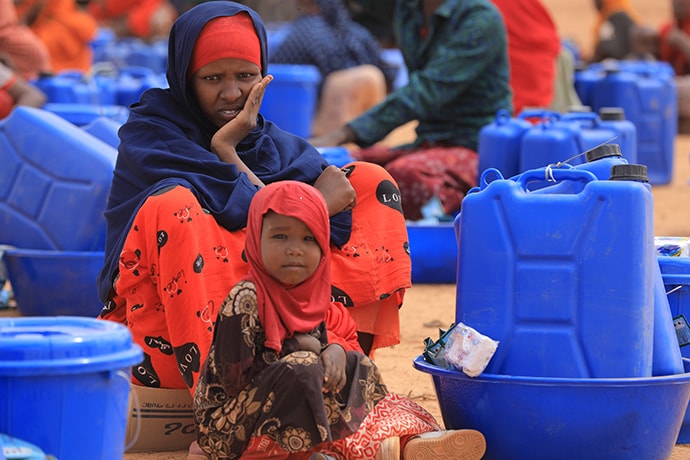
Photo credit: Mercy Corps
In Haiti, Mercy Corps’ team implemented a text and voicemail campaign that reached 2.2 million Haitians with messages about COVID-19–dispelling rumors and emphasizing good practices and behaviors. That campaign included games, quizzes, and children’s lessons targeted to help people understand how to adapt behaviors and better take care of themselves in the face of COVID-19, and to minimize fear and stigma around the pandemic. Mercy Corps works with communities to understand what their fears are, what rumors are going around, and how they can best provide accurate information that equip communities and households to better take care of themselves in the face of COVID 19.
Looking ahead, Mercy Corps just launched a new 10-year strategy, called the “Pathway to Possibility.” This strategy aligns their global programming, internal processes, and decision-making so that they can best support the communities they work with. Mercy Corps has centered climate change and conflict in the middle of the strategy because those are two of the biggest crises that are facing the countries where they work. The goal is that over the next 10-year period, Mercy Corps will be able to understand how they can support communities to better cope and adapt to climate change, conflict and other stressors. Over the next decade, they’ll be working toward four major outcome areas:
- Food security
- Water security – both access to water and sanitation, and also water resource management
- Economic opportunity and supporting communities to address poverty and build more secure and resilient livelihoods
- Peace and good governance (because they recognize that’s really underpinning all of the work that they do)
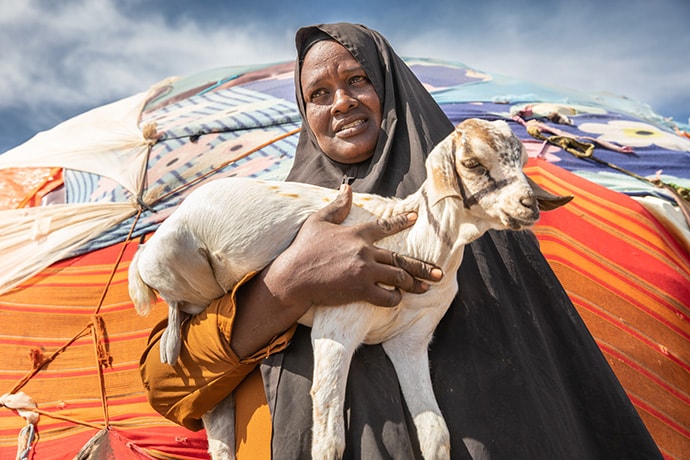
Photo credit: Mercy Corps
Mercy Corps hope that this next phase of their work sees all these pieces come together so that they can build programs that are really working to support communities to be able to thrive, in spite of the challenges that they face.
Mercy Corps is connected to the communities where they work and the Pacific Northwest, where they originated. The best way to get involved and stay informed about their work is to check their website and follow their social media channels.
Back to Top
Goalmaker
How Landesa’s Rachel McMonagle is Amplifying Land Rights with Empathy
By Amber Cortes
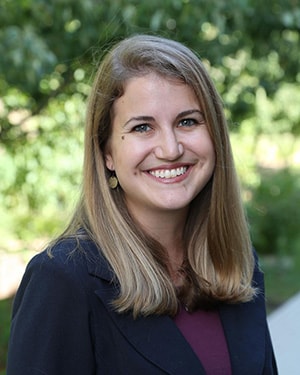 When Rachel McMonagle went to Ukraine as an Agricultural Policy Research Fellow with the Fulbright Program back in 2013, she was excited to put the methodology she had learned studying small farmers and their climate resilience strategies in her undergrad to work.
When Rachel McMonagle went to Ukraine as an Agricultural Policy Research Fellow with the Fulbright Program back in 2013, she was excited to put the methodology she had learned studying small farmers and their climate resilience strategies in her undergrad to work.
But what the young climate advocate discovered surprised her. At meeting after meeting with different governmental offices focused on agriculture, rural development, and food security, she started asking questions about soil quality, climate change, and water access.
“And what kept coming up was land tenure and land rights,” McMonagle says.
Since Ukraine’s independence from the USSR in 1991, the land market had shifted from a collectivized model where small famers and families were owning land in groups, to a more individualized landholding model.
Since the transition happened so quickly, McMonagle says, the boundaries were not clearly defined, and many farmers were left without their land—or their rights.
“There was a lack of clarity around who owned what and what could be done with those plots of land.”
The government responded by putting a moratorium on agricultural land sales.
“And so, it created a culture of leasing land, and there was no incentive to really be caring for the soil or thinking long term about the ecological health of that plot of land,” she explains.

Ukraine farmlands. Photo: Rachel McMonagle.
The lesson McMonagle took from that experience was how vital a role land rights and ownership played in everything from ecological health to access to healthcare, clean water, and economic empowerment.
“It underlies all of them,” McMonagle says. “And I think land is not discussed as loudly as it needs to be in all of those contexts.”
Since then, McMonagle has been getting people to listen—to how land tenure is a core component of any effective climate solution, and how when populations such as women and Indigenous people own their own land, the impacts build stronger climate resilience within communities and better stewardship of natural resources.
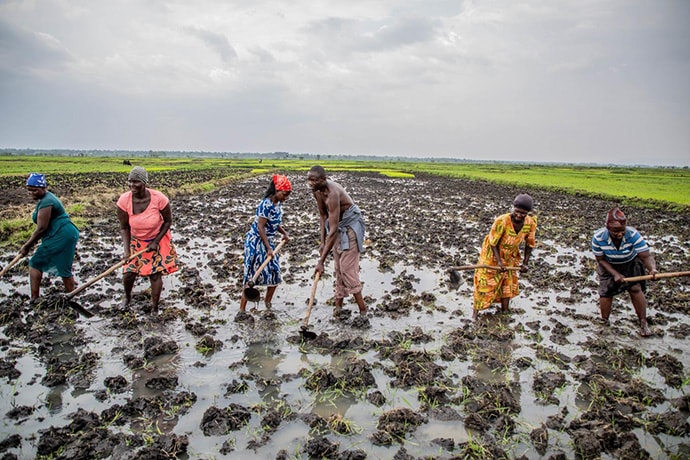
Field visit to Butaleja, Uganda, as part of Stand for Her Land (S4HL) Regional Launch, Feb. 2022. Photo: Zahara Abdul.
“I think understanding that land is often not number one on the priority list for governments, but it is so inextricably tied to so many other social and economic issues, that it really ought to be considered a higher priority,” says McMonagle.
As director of the Climate Change program at Landesa, an organization working to secure land rights for women, Indigenous communities, and rural populations, McMonagle’s role is to make sure this happens, by working with governments to develop climate change solutions centered on access to land, that work for both people and planet.
“And this is really important, because for many communities that Landesa is working with, their health and livelihoods are so closely tied to natural resources. And so, this right is essential for a community’s well-being,” McMonagle says.
Since she started the role during the pandemic, McMonagle is looking forward to traveling again, as well as Landesa’s presence at the three Rio conventions—the UN Framework Convention on Climate Change, the UN Convention to Combat Desertification and the Convention on Biological Diversity.
She draws inspiration from Landesa’s projects like a recently launched new initiative spanning six different geographies in Asia over the next five years, focused on mangroves.
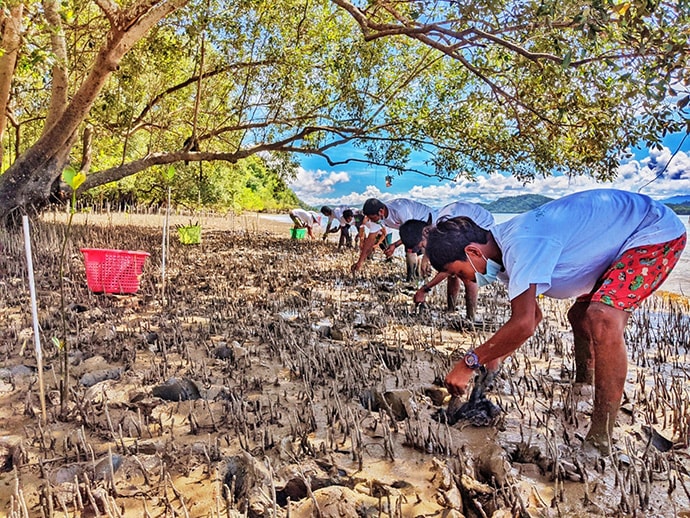
U Pho Toke and his 14-year-old son lost their jobs in Thailand, and returned to their mangrove village in Tanintharyi. It is now certified as a 150 acre Community Forest. With their new certification, they receive free mangrove saplings from the Forest Department for replanting, and a sense of security so that they will invest in their land. Myanmar, 2020. Photo: Landesa.
“They store a massive amount of carbon, which is really exciting and powerful in the mitigation front. For these communities, securing their tenure and continuing to live in those coastal areas will have huge impacts for them on a variety of fronts.”
McMonagle is also inspired by the spirit of empathy—“that broader constellation of how I fit in with the network of other living things on this planet”—which is what drew her into this kind of work in the first place, and “really led into a passion for climate justice and set me on this path in my career.”
And she knows that as we grow globally, issues of land reform tied to food and water resource access are becoming more interconnected than ever. And we are, too. After all, years after her time in Ukraine, Russia’s most recent invasion of the country is now disrupting the global food chain and creating rising prices across the world.
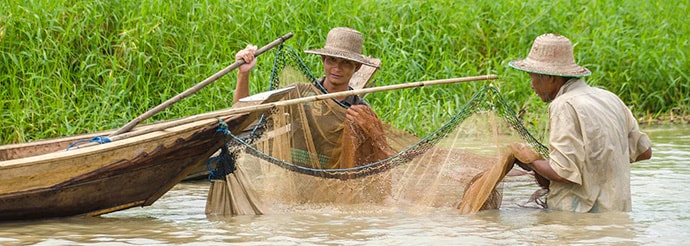
People pull up a fish net from the river. Myanmar, 2017. Photo: Tyler Roush/Landesa.
Even though it’s complex, McMonagle sees this interconnectedness as a net positive for adapting to climate change—if we can strengthen and build climate-smart regional systems to rely on less movement of food and create less emissions.
“I think the crux is that climate change doesn’t stop at the political boundaries that we’ve designed. And so our solutions can’t either.”
Back to Top
Links for August Issue Campaign: Climate Action
August Blogs Posts:
Highlighted Social Posts:
Remote Energy: Technical Training for Native Americans
Remote Energy is developing training programs for Native Americans to learn the technical skills of PV instructors. Their goal is to empower Native American students and technicians to become energy sovereign and create sustainable communities.
Oxfam: Climate change and inequality
Oxfam America is committed to supporting farmers, advocating for national action to reduce emissions, and standing “with indigenous and other communities advocating for their rights to land governance, water management, and food security where they are at risk from the drivers of deforestation and natural resource degradation.”
Landesa: Land rights offer a path to a restored planet and a secure future for all.
Landesa has developed a Collective Women’s Land Rights Commitment to platform gender equality among civil society and farmers’ organizations. They aim to accelerate poverty eradication and climate action through their initiatives.
Future of Fish: Fishing for Opportunity in Peru
Future of Fish is currently working in Peru to equip fisheries with the resources and education necessary to ensure positive environmental outcomes for coastal communities. With the help of the local community, Future of Fish is aiming to drive seafood sustainability, empower artisanal fishers in politics, and much more.
Earthworm Foundation: Socfin, National Forestry School and Earthworm Foundation Partner to Restore Degraded Cameroonian Forests
At the start of 2022, Earthworm partnered with Socfin and the National Forestry School to restore 1,568 hectares of depleted forest in Cameroon’s Centre Region. They aim to educate the local communities and implement income-generating activities.
The Hunger Project: Celebrating the Impact of Young Climate Activists at Skoll, CSW
The Hunger Project is platforming young leaders around the world committed to preserving climate and nature. They continue to elevate climate solutions such as funding youth movements and creating platforms available to marginalized communities.
Girl Rising: A New Initiative from Girl Rising on the Deep Links Between Girl’s Education and Climate Change
Girl Rising has launched a global program providing financial and developmental resources to a group of young leaders advocating for water and food security. With the support of Girl Rising, they will provide climate solutions to regions experiencing extreme resource insecurities due to the warming climate.
Dalberg Advisors: AFDB – Design and structuring of the fund for energy inclusion
Through (our member) Dalberg’s commitment to climate action, they have “designed and structured a $500 MM African Development Bank debt facility to support the scaling of renewable energy providers.”
Amazon: Go behind the scenes as Amazon develops a new electric vehicle
Our member, Amazon is currently partnering with Rivian to bring thousands of electric delivery vans to 100 cities around the U.S. by the end of 2022. The shift to these emission-free electric vehicles will drastically reduce carbon emissions, progressing Amazon’s commitment to become net zero carbon by 2040.
Nature.com: Over half of known human pathogenic diseases can be aggravated by climate change
Climate change is pervasive and we are seeing its effects with drought, floods, hot zones, hunger…And this latest study shows how climate change will exacerbate pathogenic diseases. We need to act NOW.
Resonance Global: Why Companies Partner with Social Enterprises
Are you a (for-profit) company looking to do good >and< have a competitive edge? Consider partnering with a social enterprise!
Resonance Global: The Guide to Cross-Sector Collaboration
How Companies, Foundations, NGOs, and Governments Can Partner to Solve Business and Global Development Challenges
“Climate change, poverty, and inequity are among the most critical issues of our time. Cross-sector collaboration leverages the strengths of companies, governments, and donors to accelerate progress on these and other complex issues in a way that benefits everyone.”
This guide, from our member Resonance, is comprehensive and instructional for anyone wanting to make a greater impact and wants to know more about the #powerofpartnership.
Back to Top
Member Events
September 10: Mona Foundation 2022 Virtual Gala
October 3 – 9: The Max Foundation: Max Global Experience Cambodia
October 8: Save The Date: Mission Africa’s 2022 Annual Fundraiser
October 15: The Hunger Project 2022 Fall Event: The Future is Calling
October 19 – 21: NetHope Global Summit 2022
October 21: GlobalPDX: 2022 Conference
October 26 – 28: Central America Donors Forum 2022
Back to Top
Career Center
HR Coordinator, Village Reach
Investor Relations Assistant – Seattle, Global Partnerships
Coordinator, Community Programs and Communications, World Affairs Council
Development and Marketing Associate, Upaya Social Ventures
Director, Institutional Partnerships, Upaya Social Ventures
Investor Relations Assistant, Global Partnerships
Credit Operations Officer, Global Partnerships
Check out the GlobalWA Job Board for the latest openings.
Back to Top
GlobalWA Events
August 25: Networking Happy Hour with Friends of GlobalWA, Global Leadership Forum, and World Affairs Council/YPIN!
September 8: All Member Event – More info will be sent to GlobalWA members soon
SAVE THE DATE – December 7-8, 2022: Goalmakers Conference 2022
Back to Top
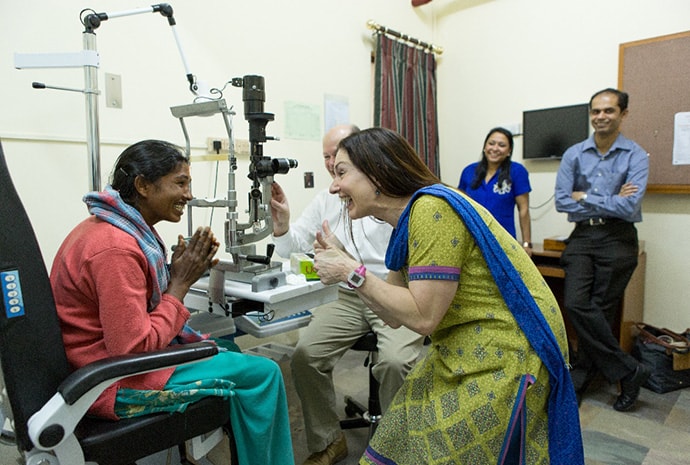
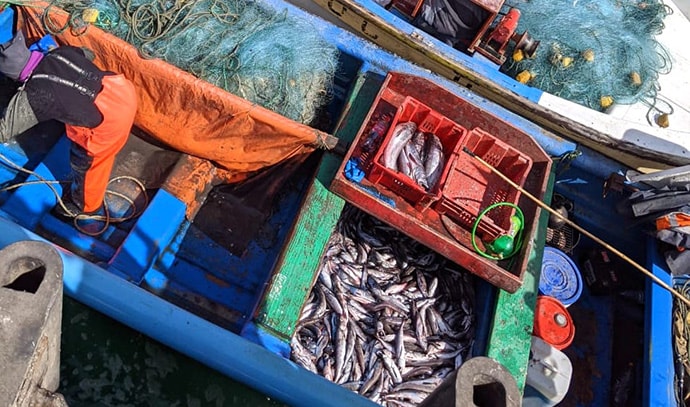
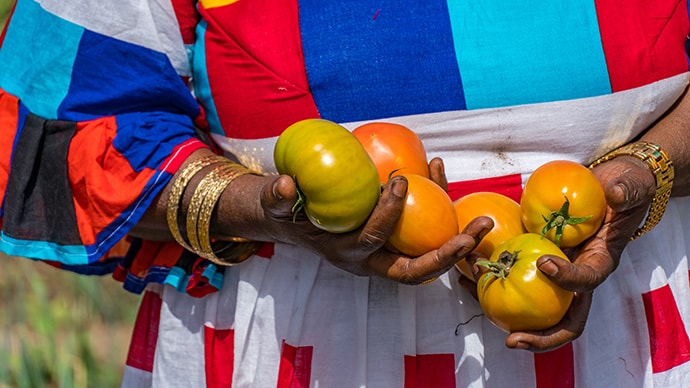
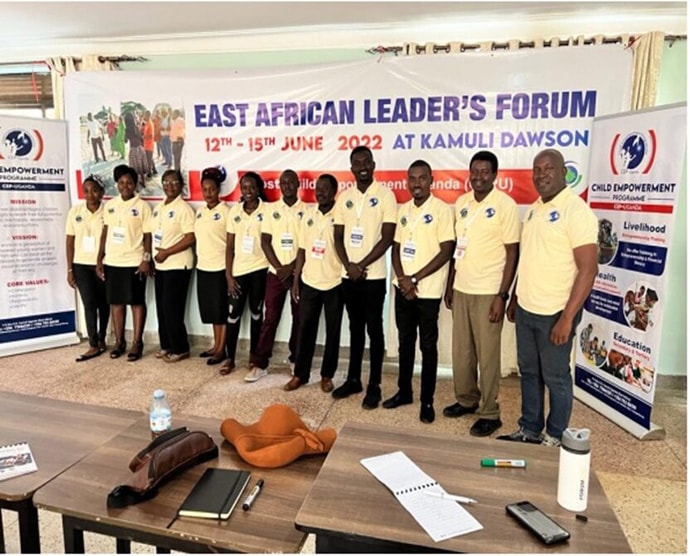
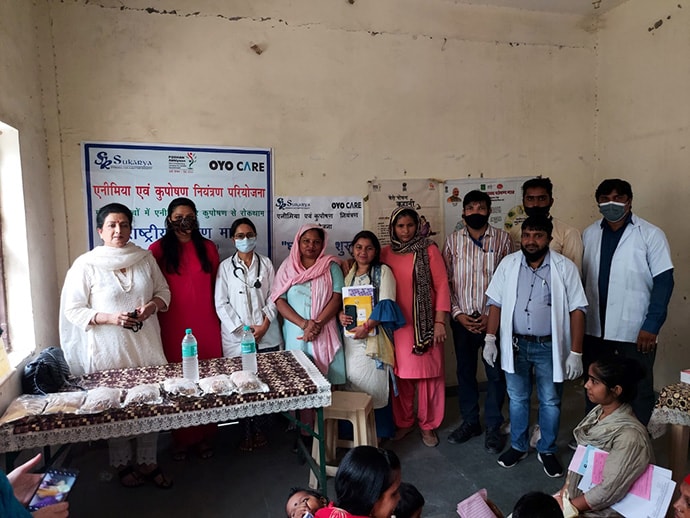





















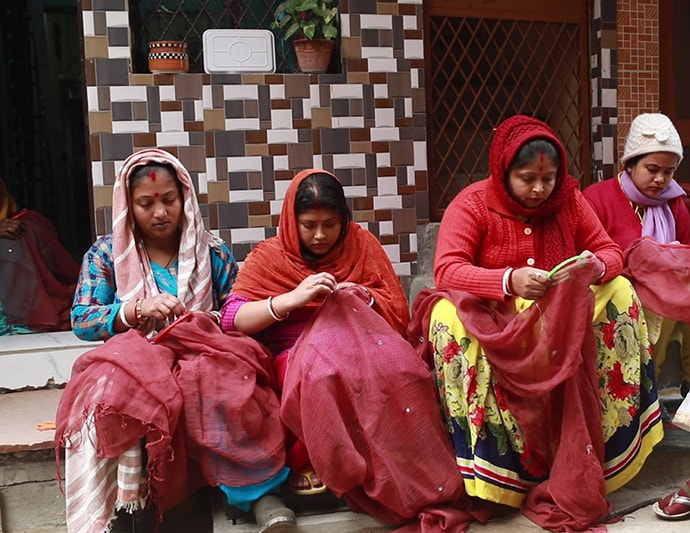
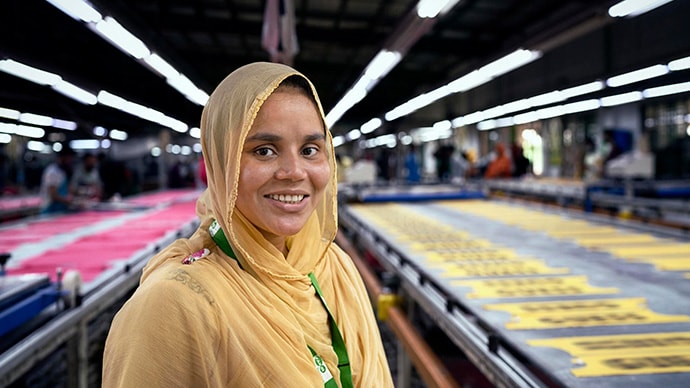














 When Rachel McMonagle went to Ukraine as an Agricultural Policy Research Fellow with the Fulbright Program back in 2013, she was excited to put the methodology she had learned studying small farmers and their climate resilience strategies in her undergrad to work.
When Rachel McMonagle went to Ukraine as an Agricultural Policy Research Fellow with the Fulbright Program back in 2013, she was excited to put the methodology she had learned studying small farmers and their climate resilience strategies in her undergrad to work.



